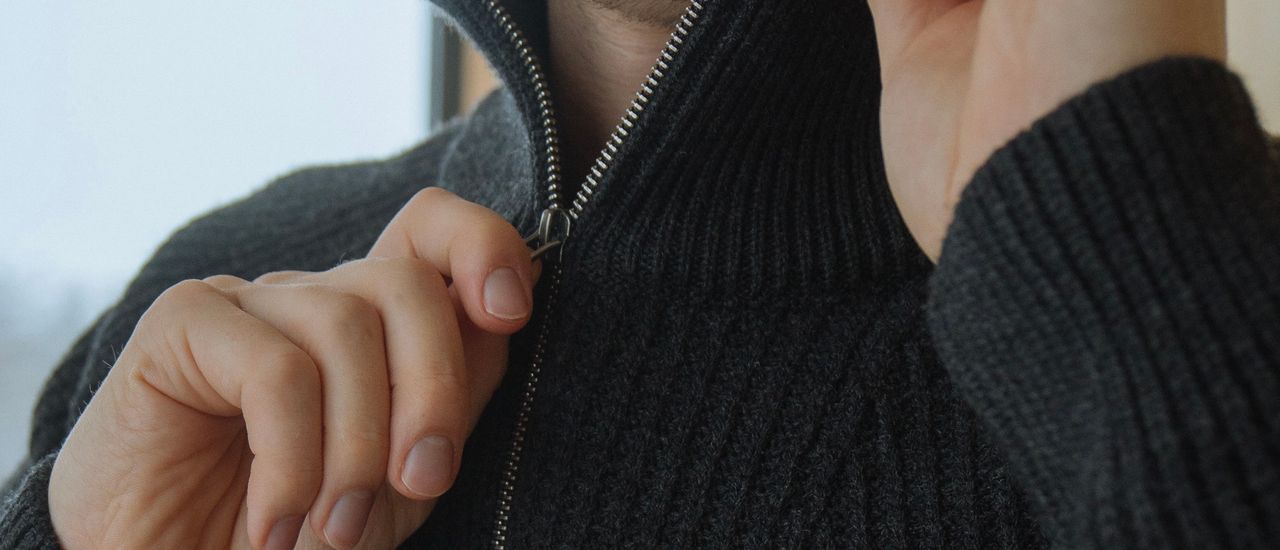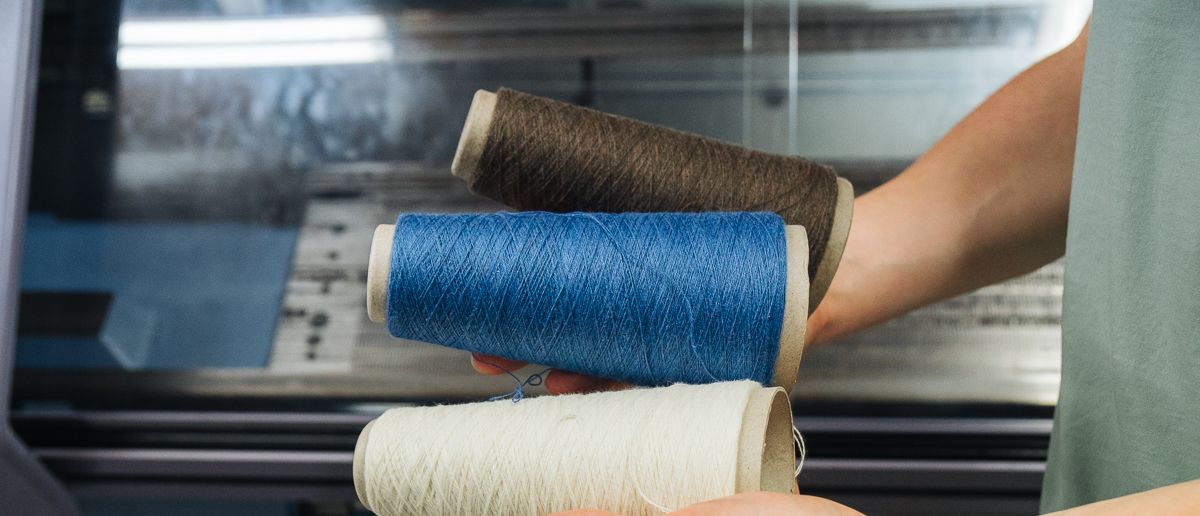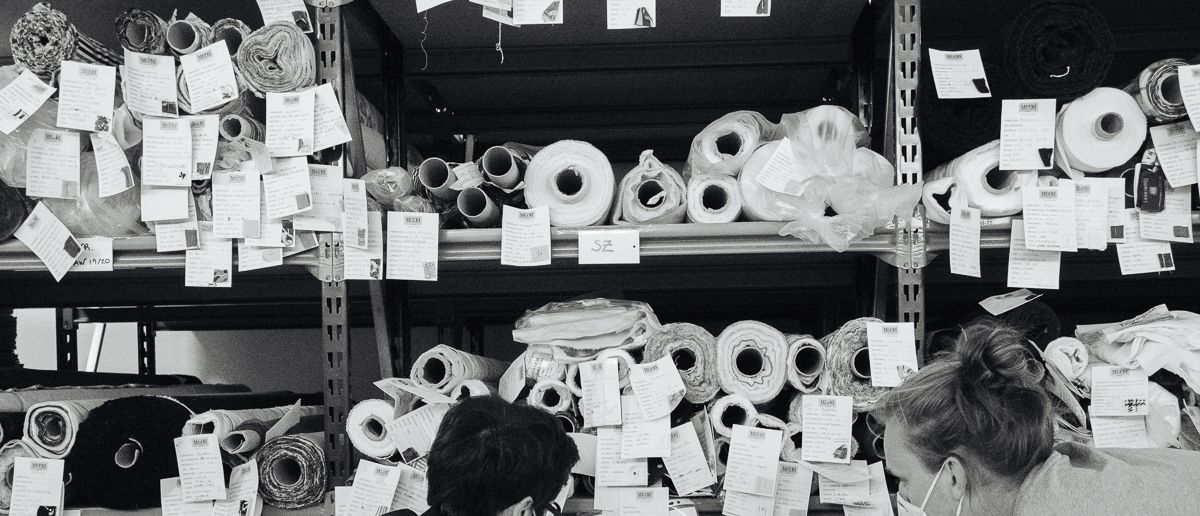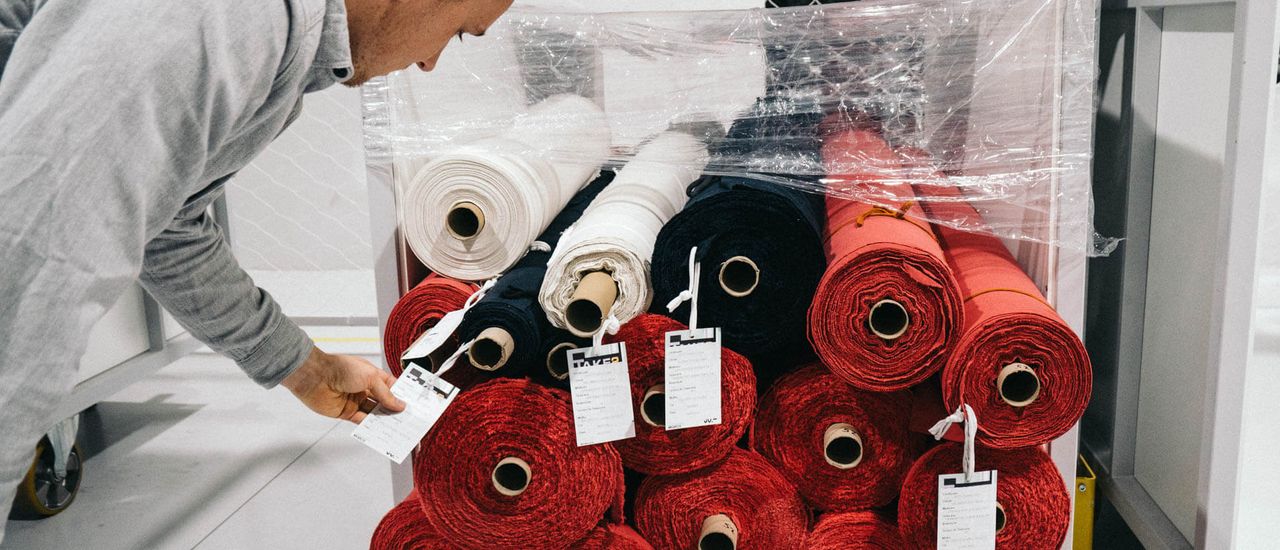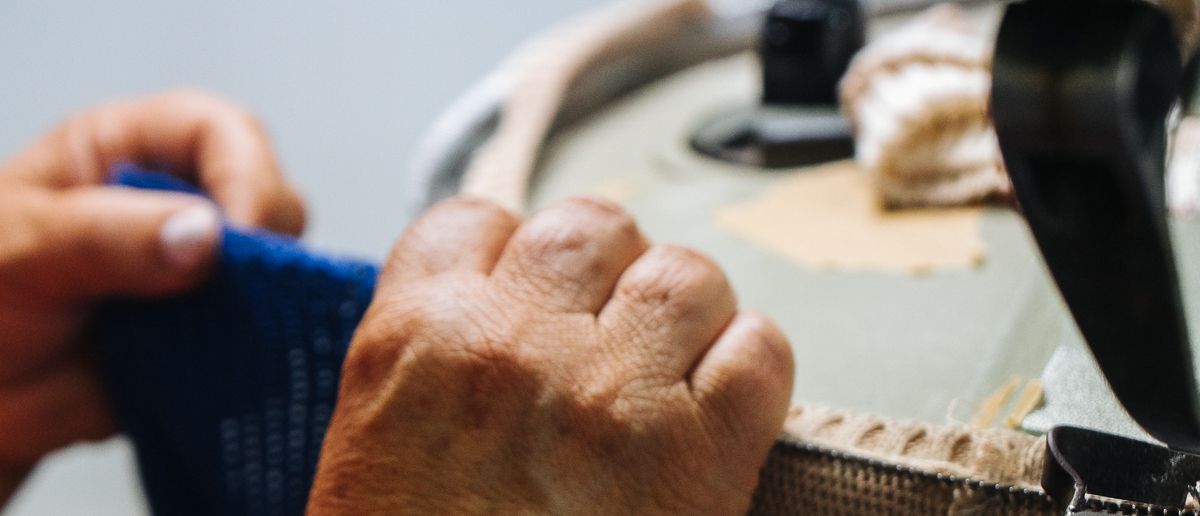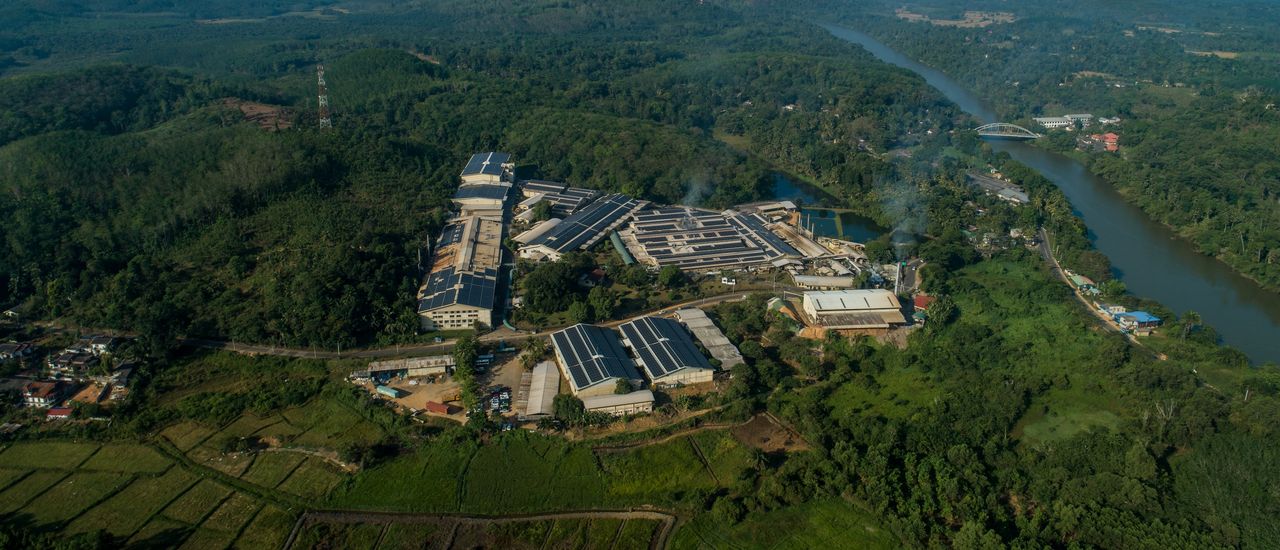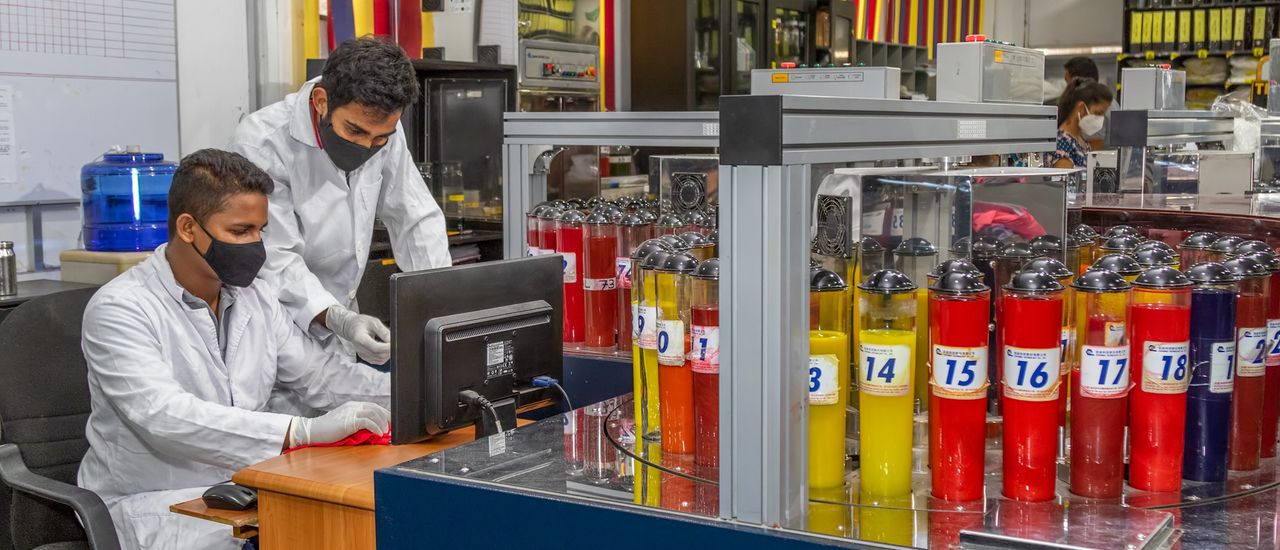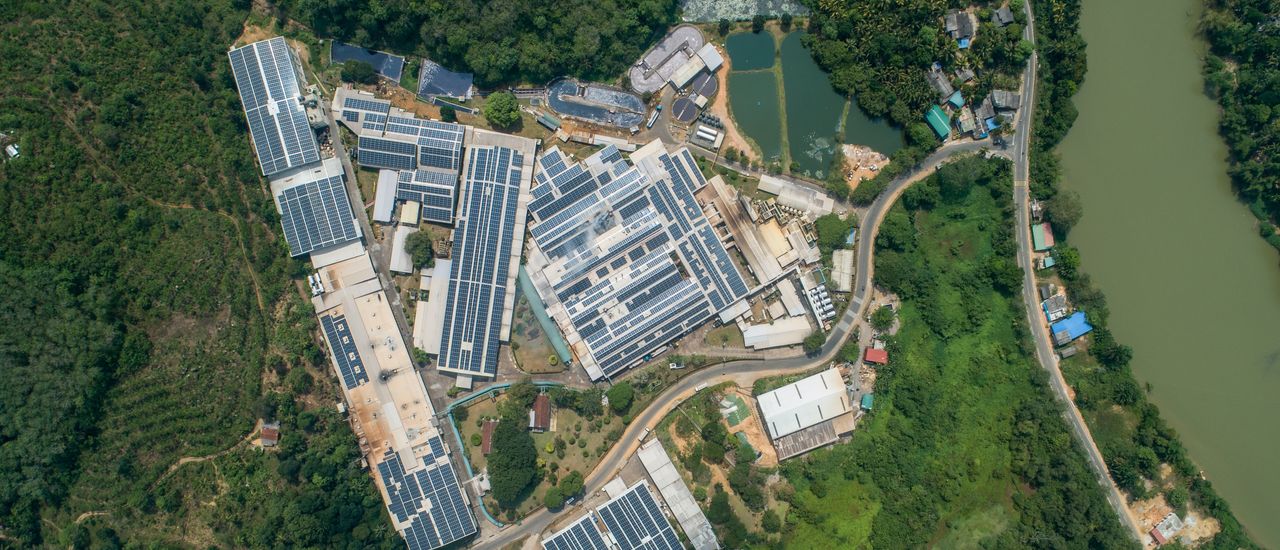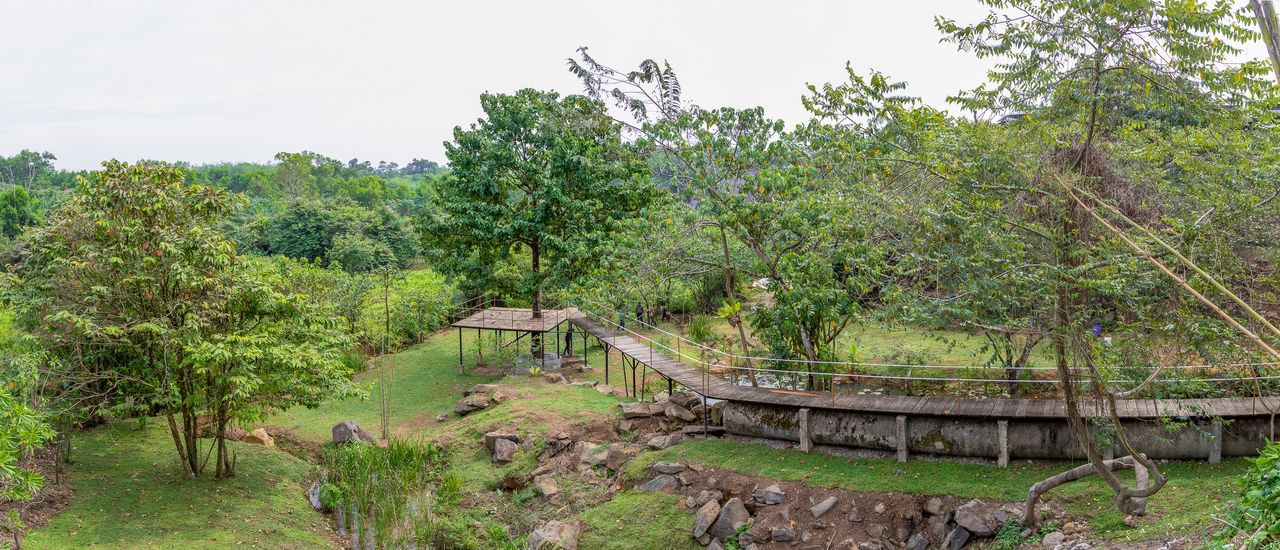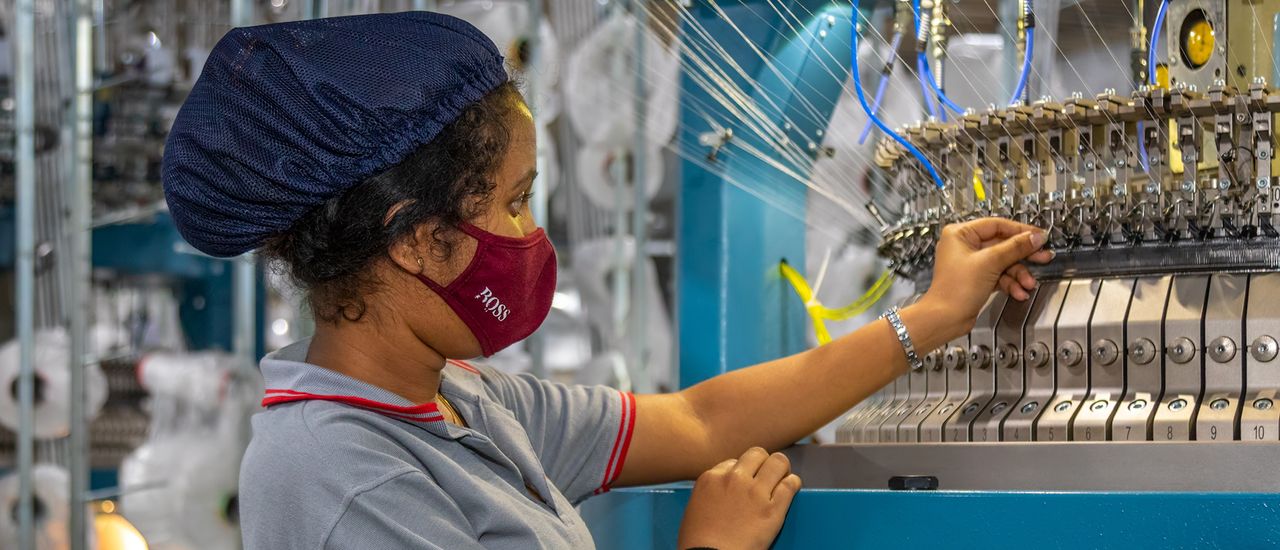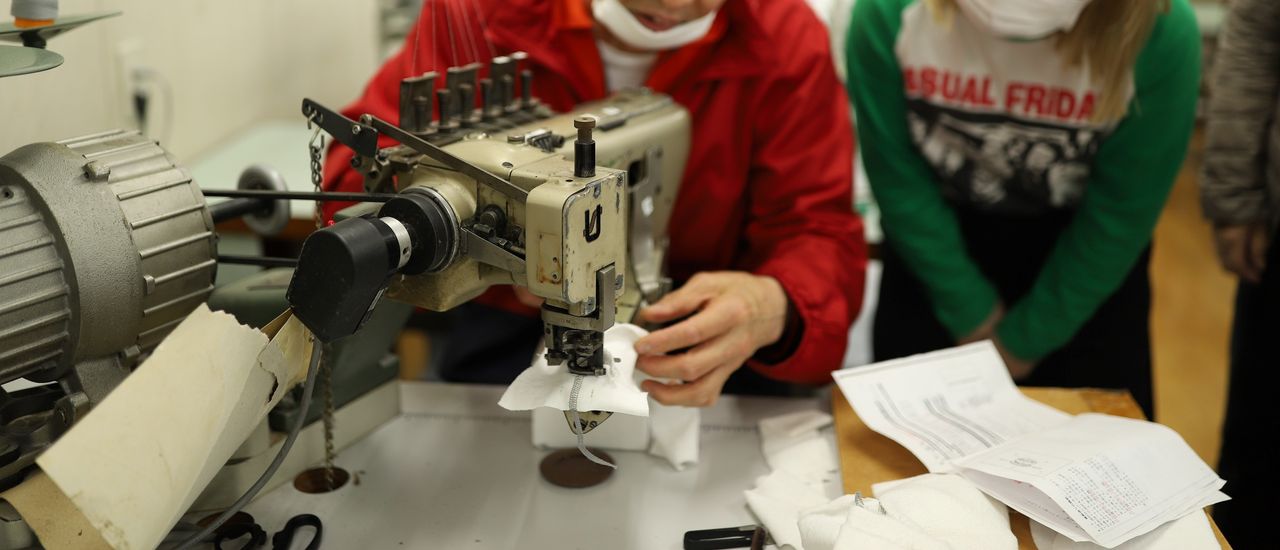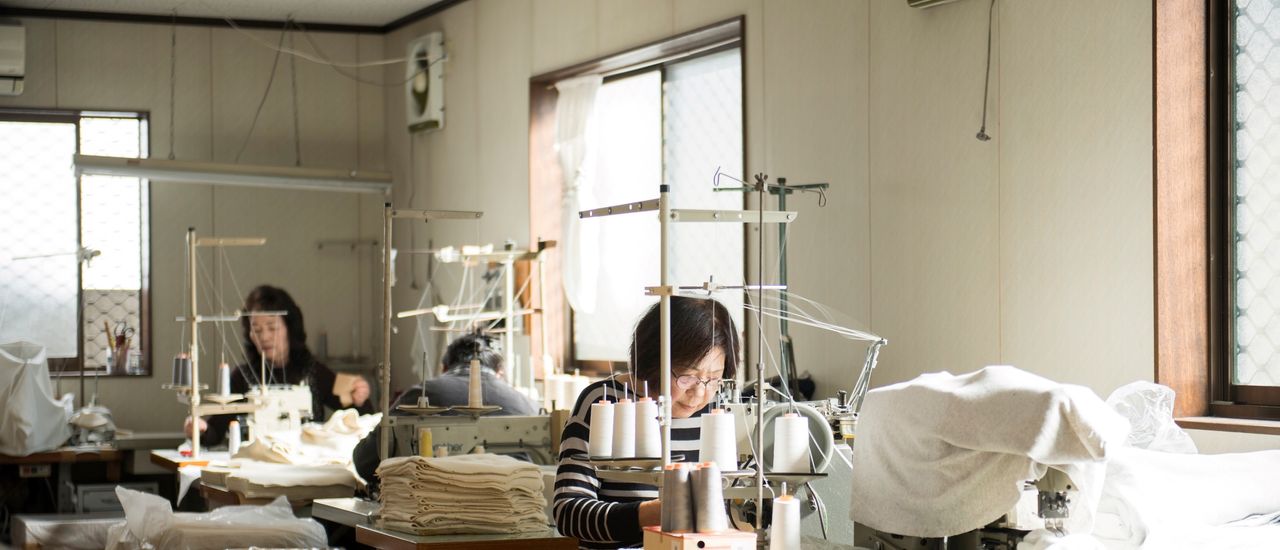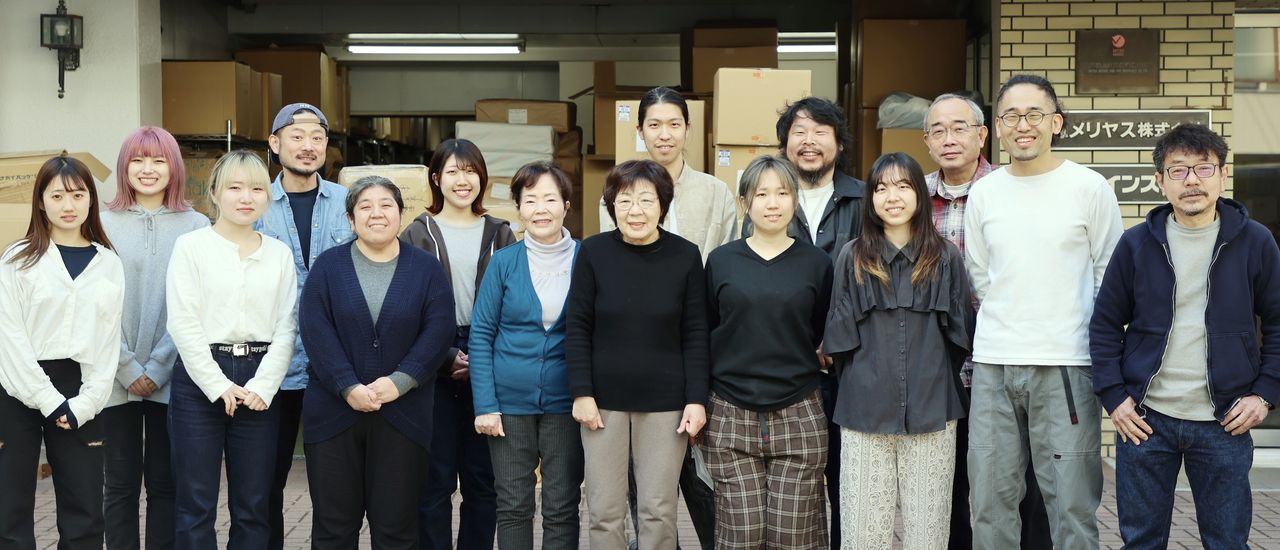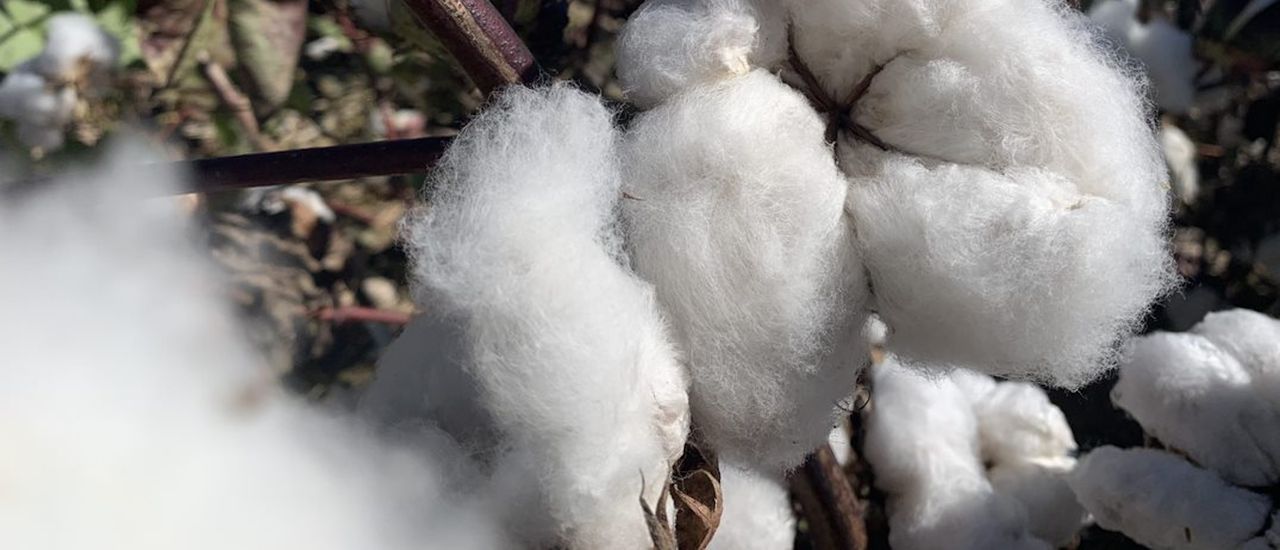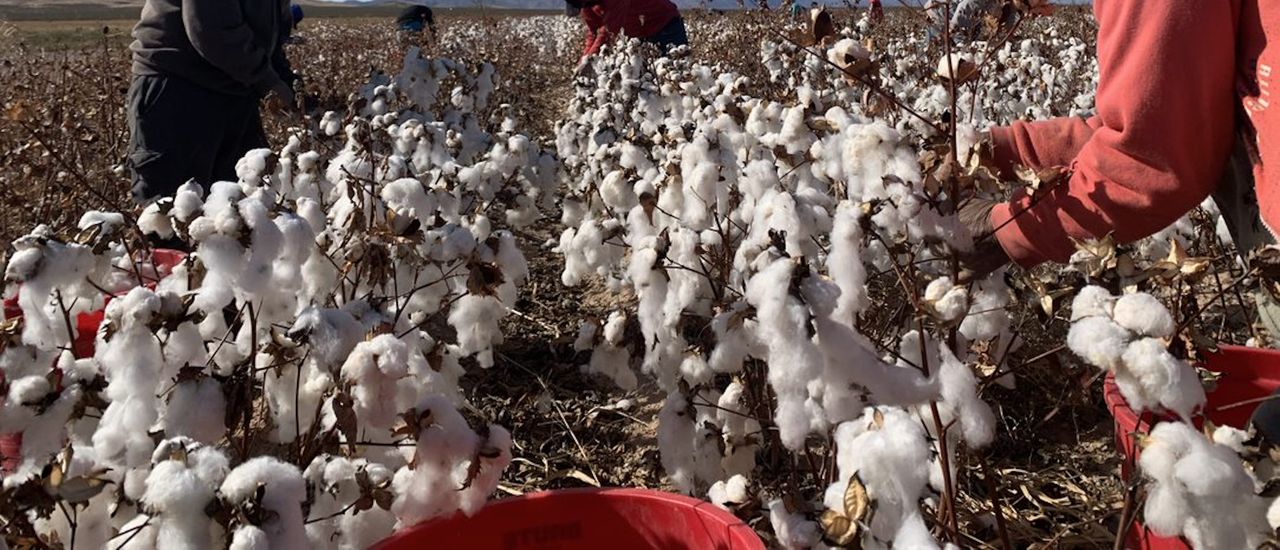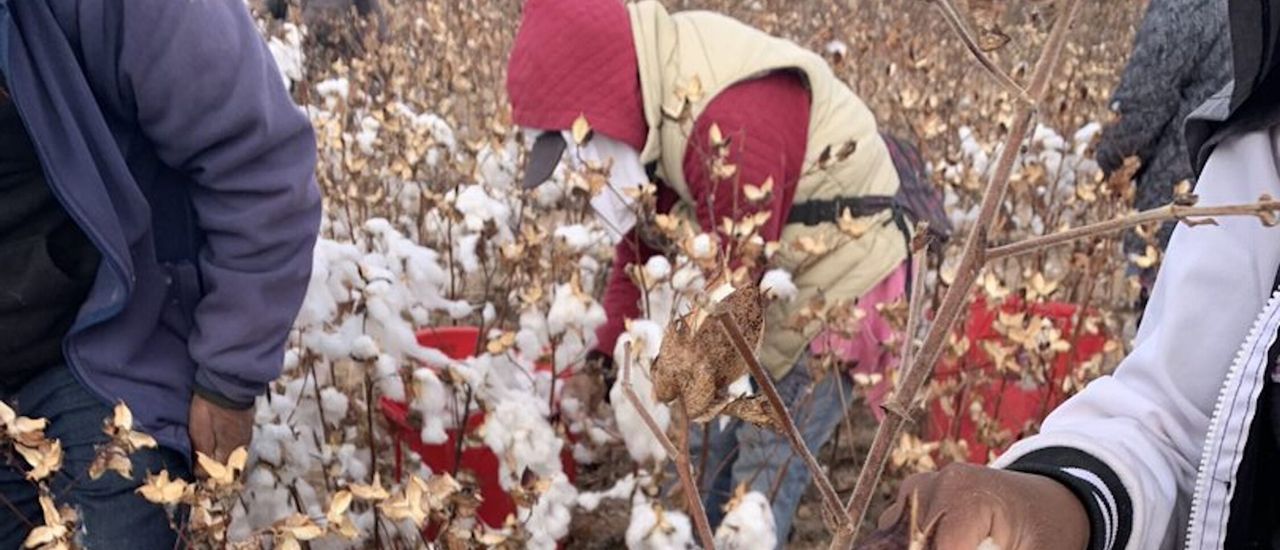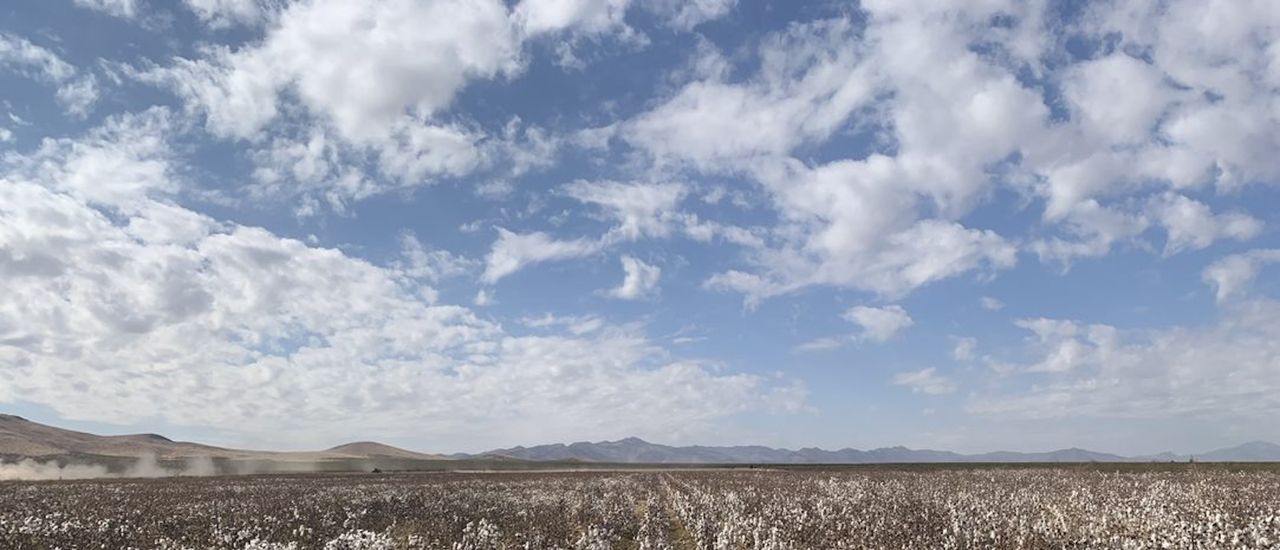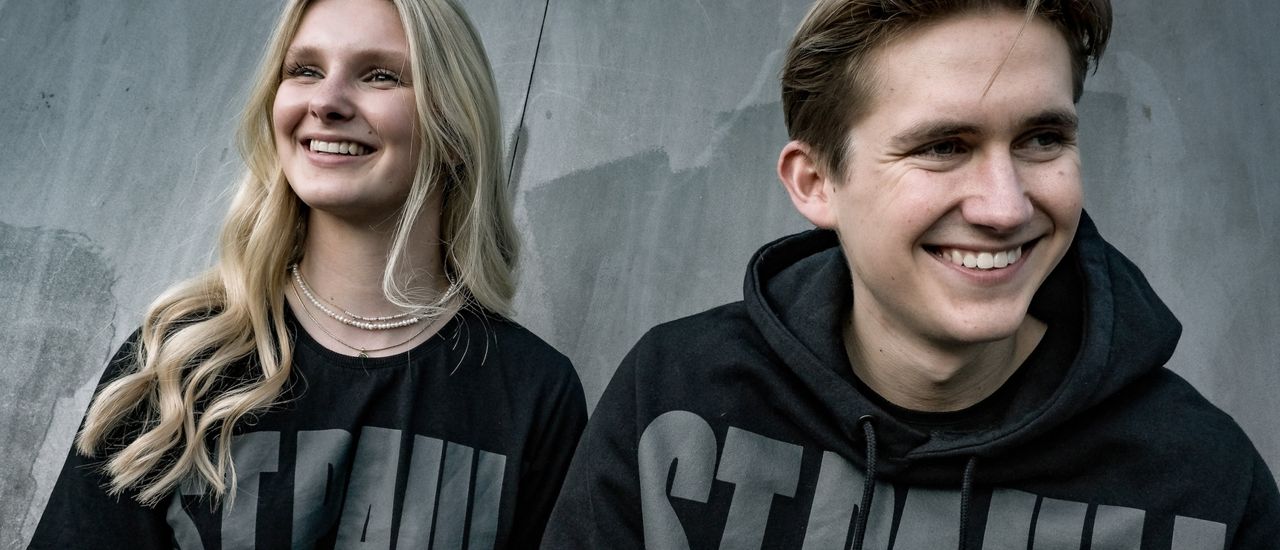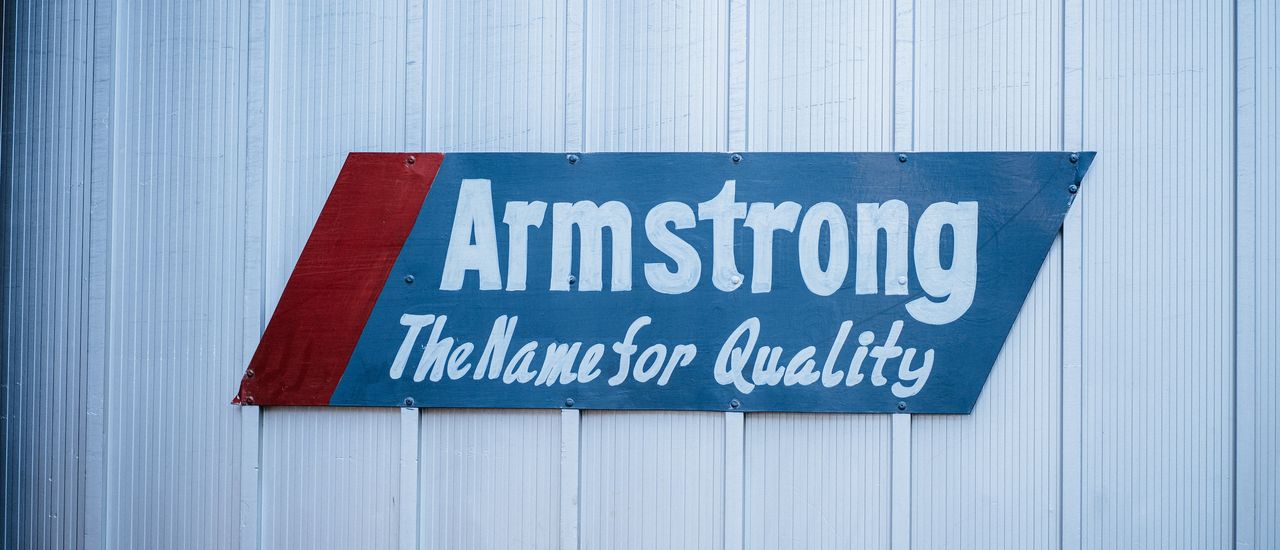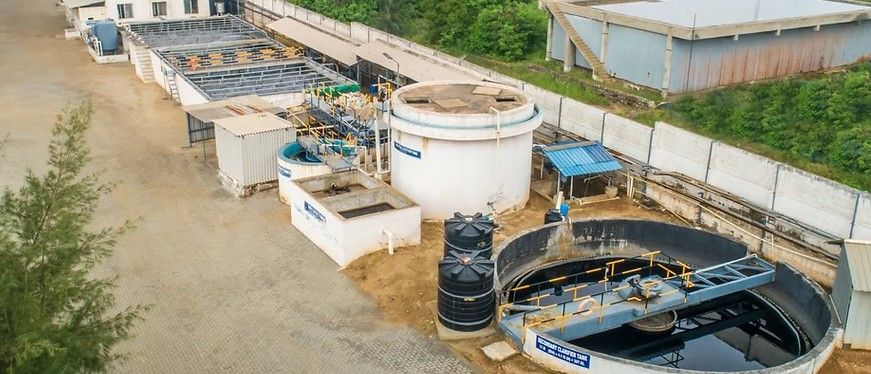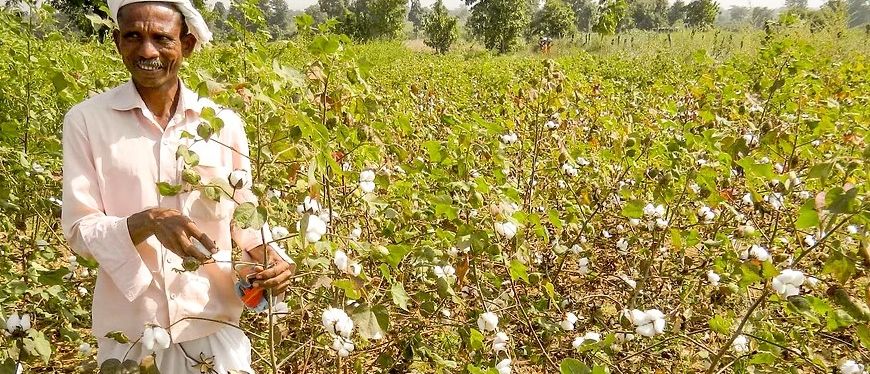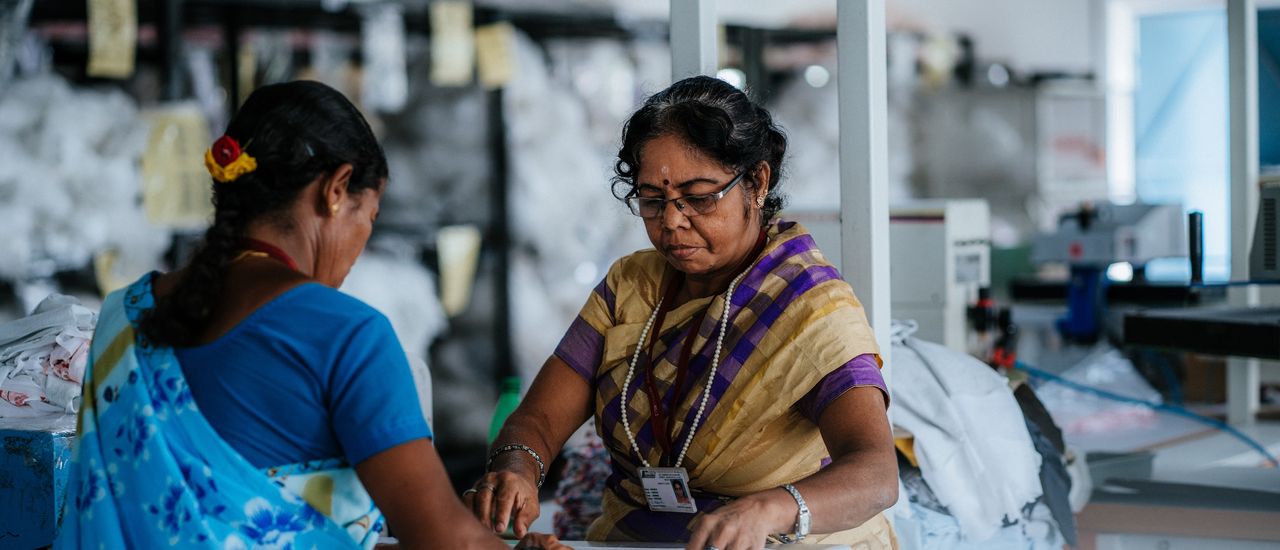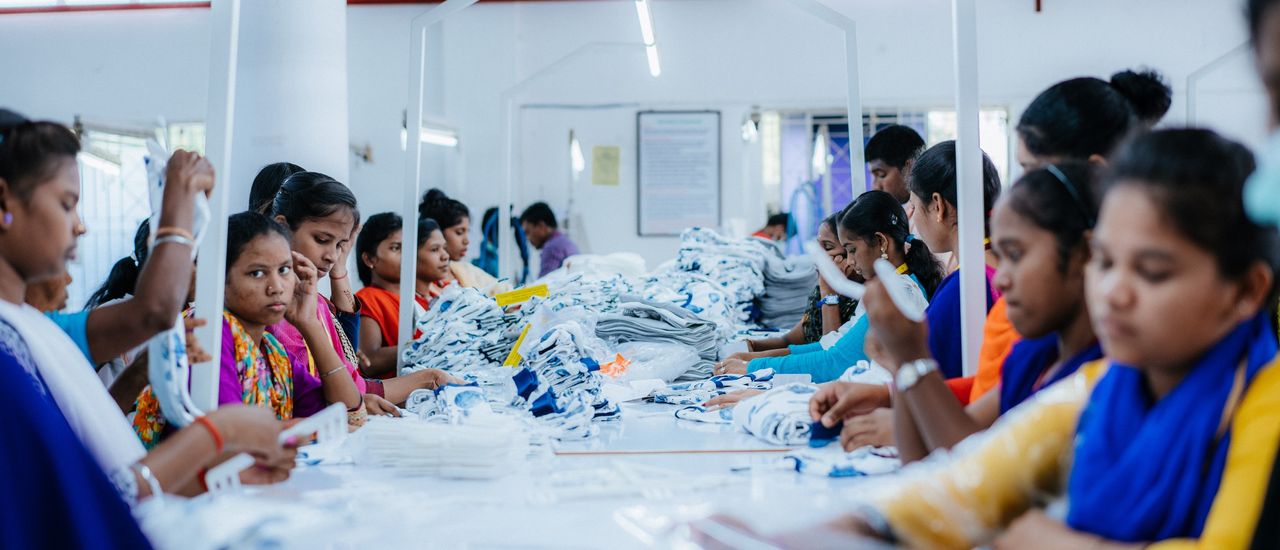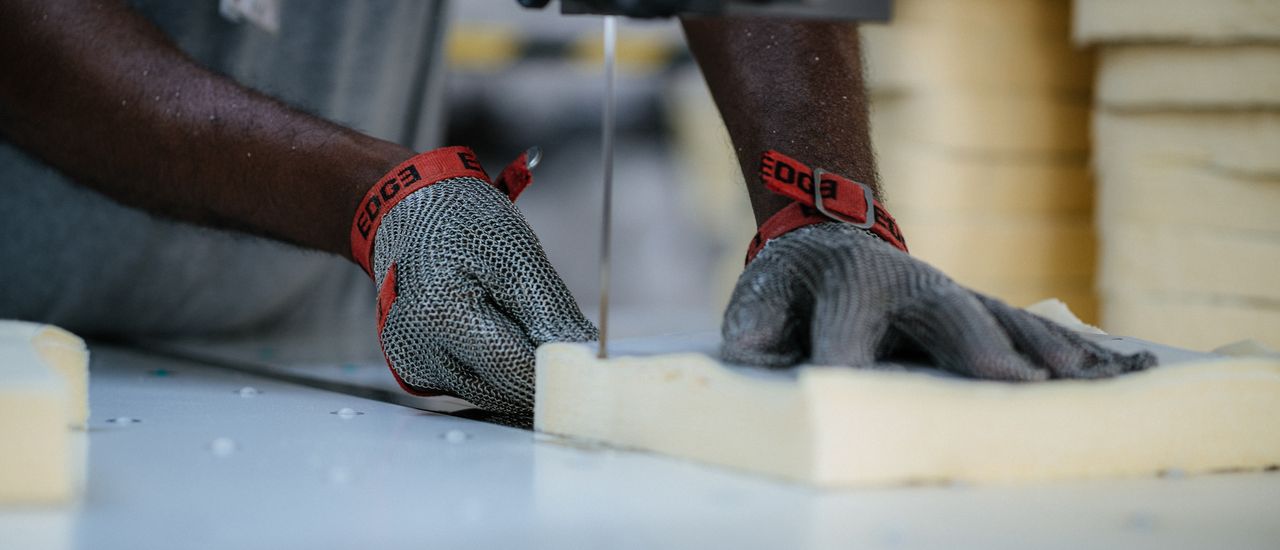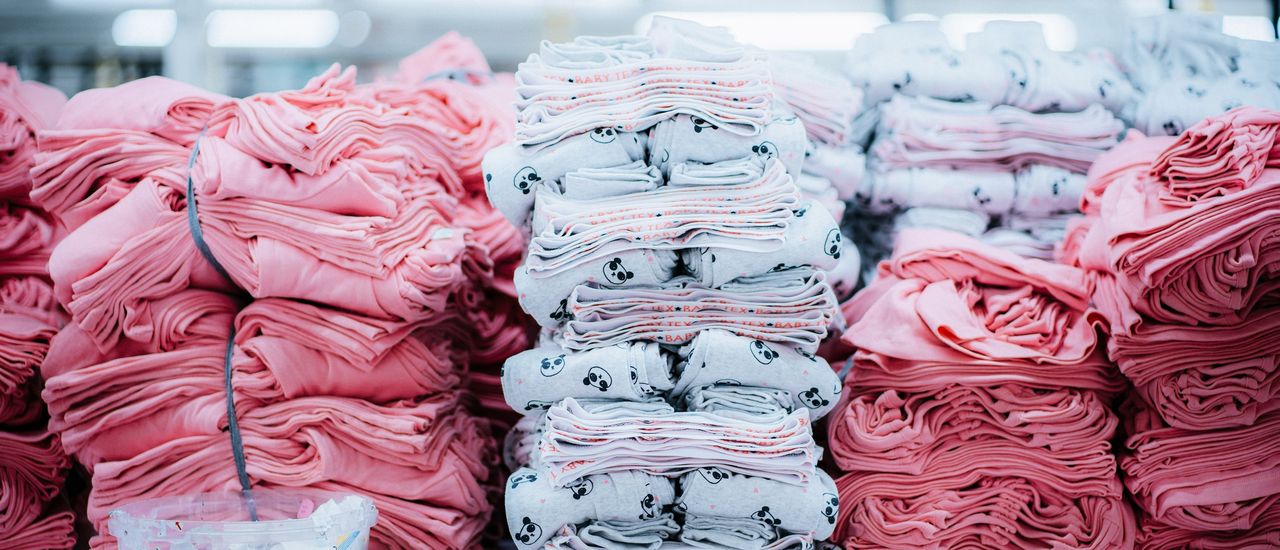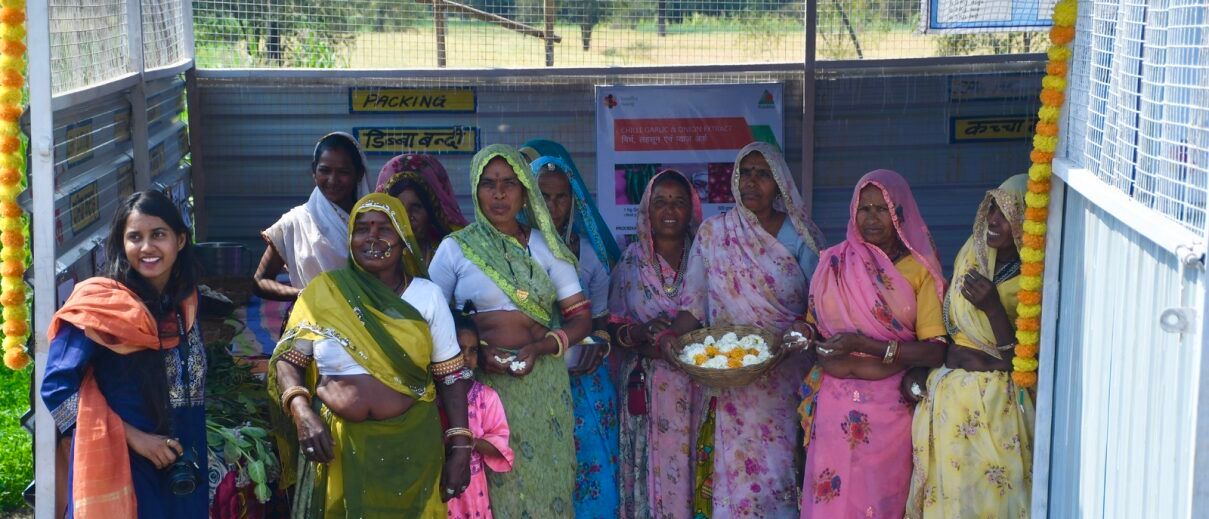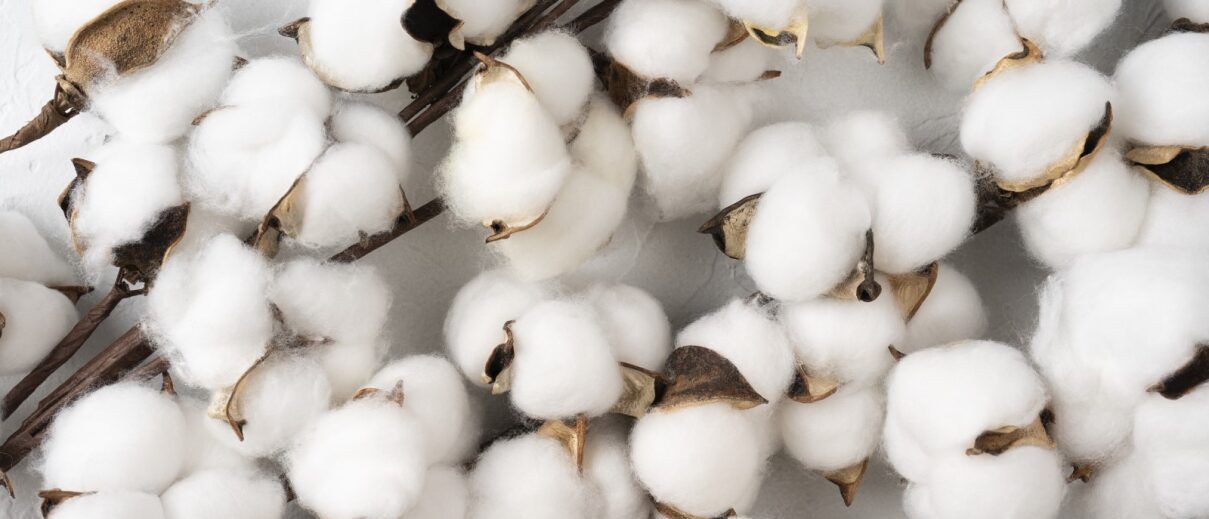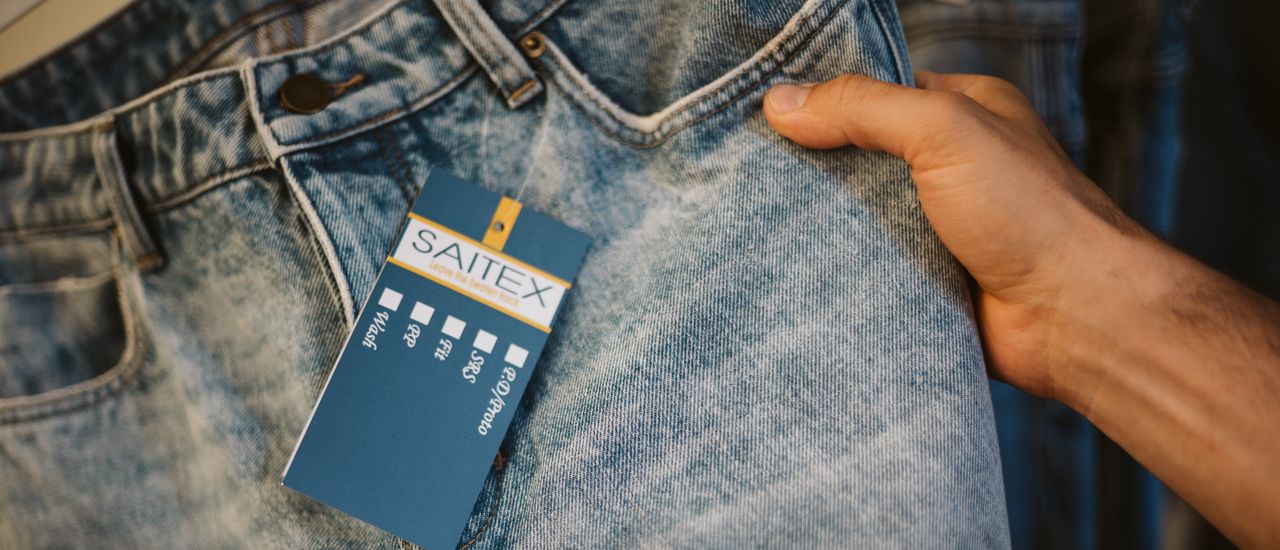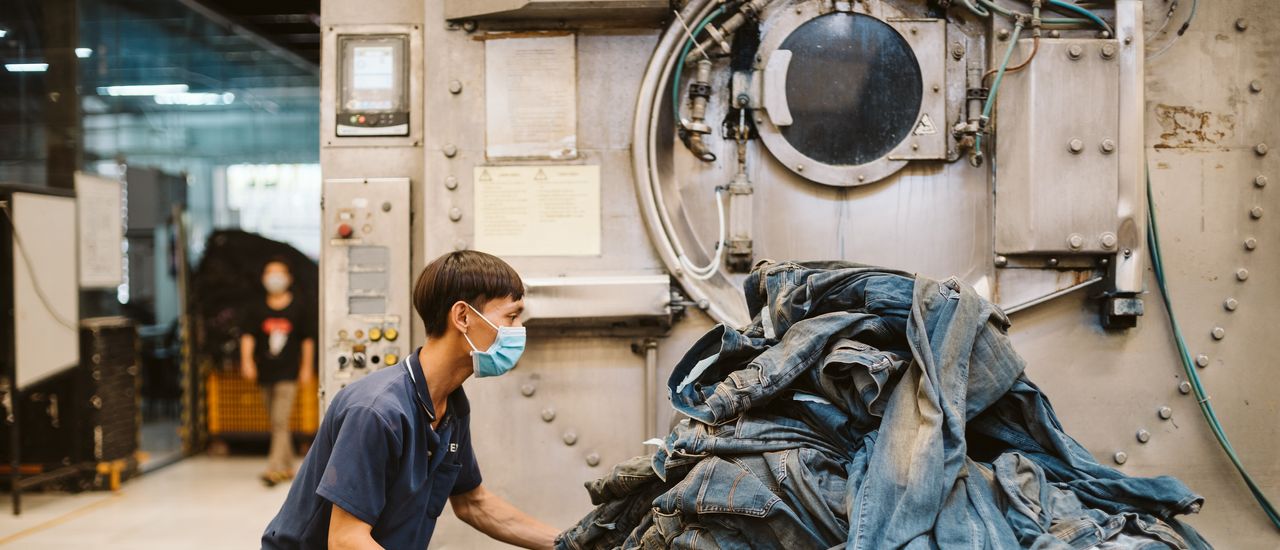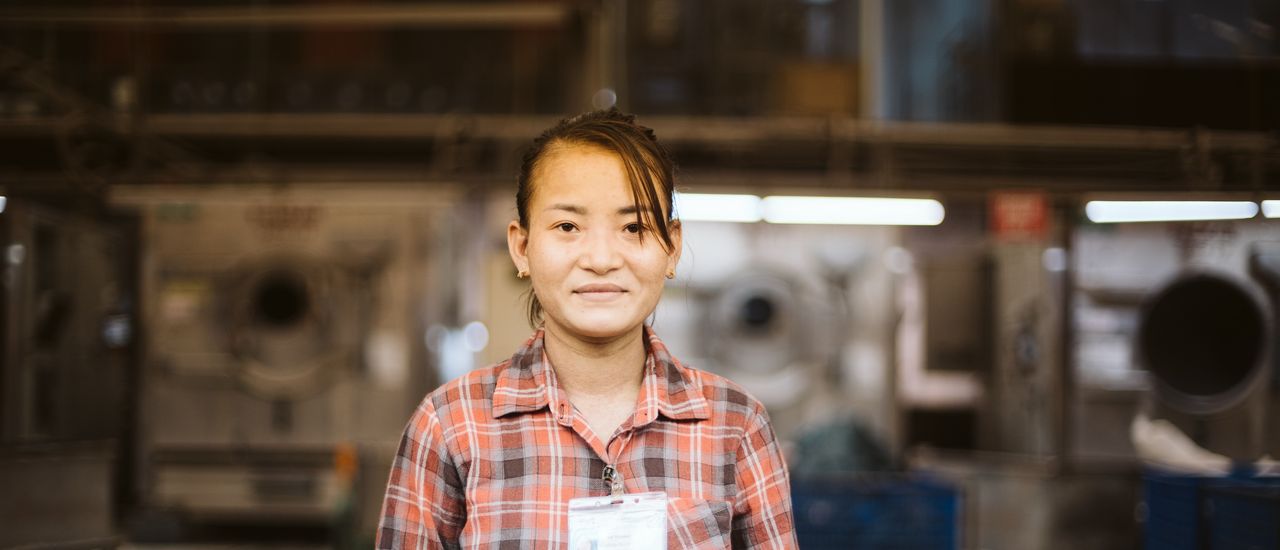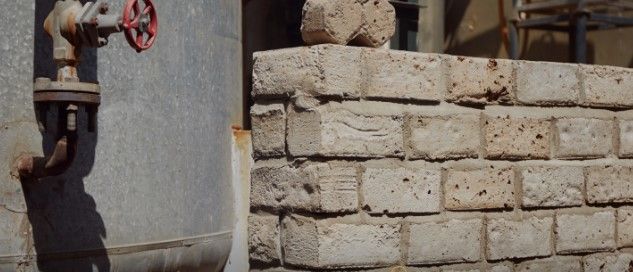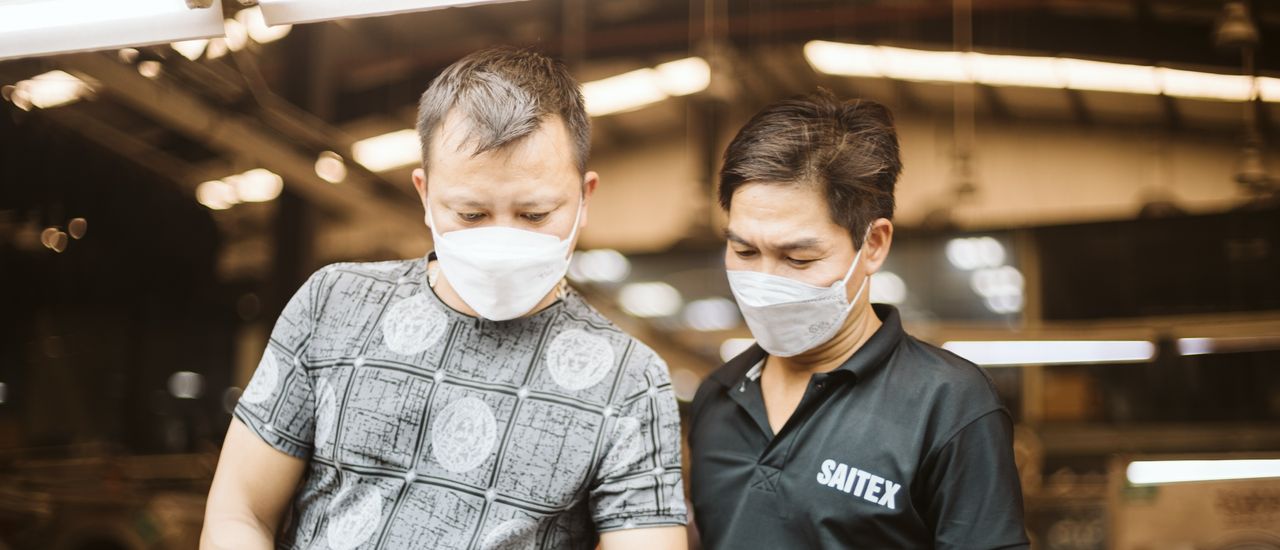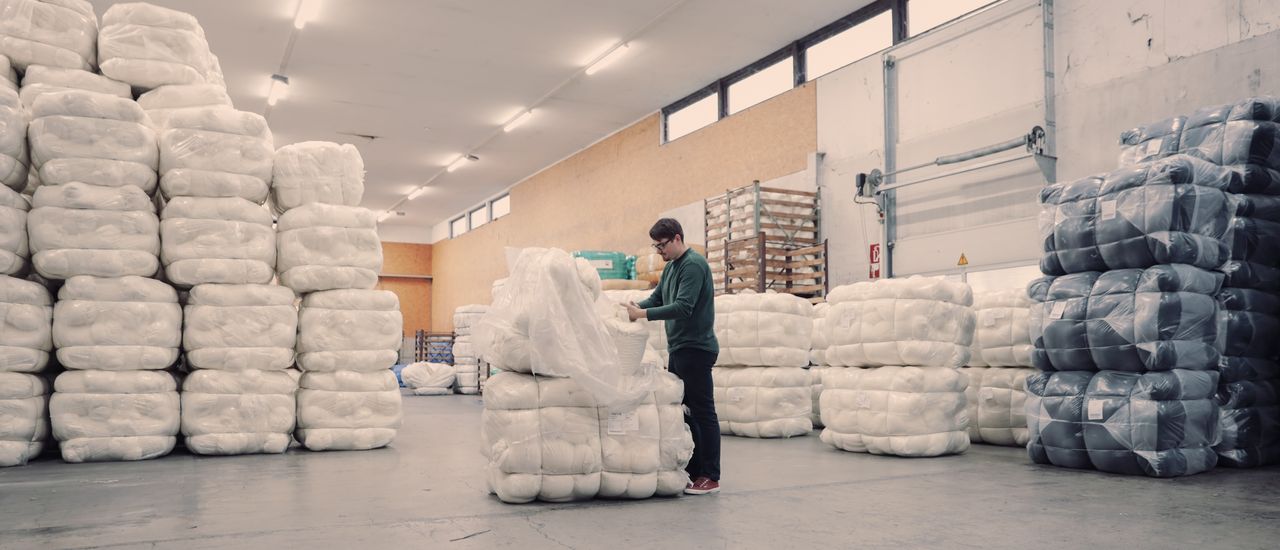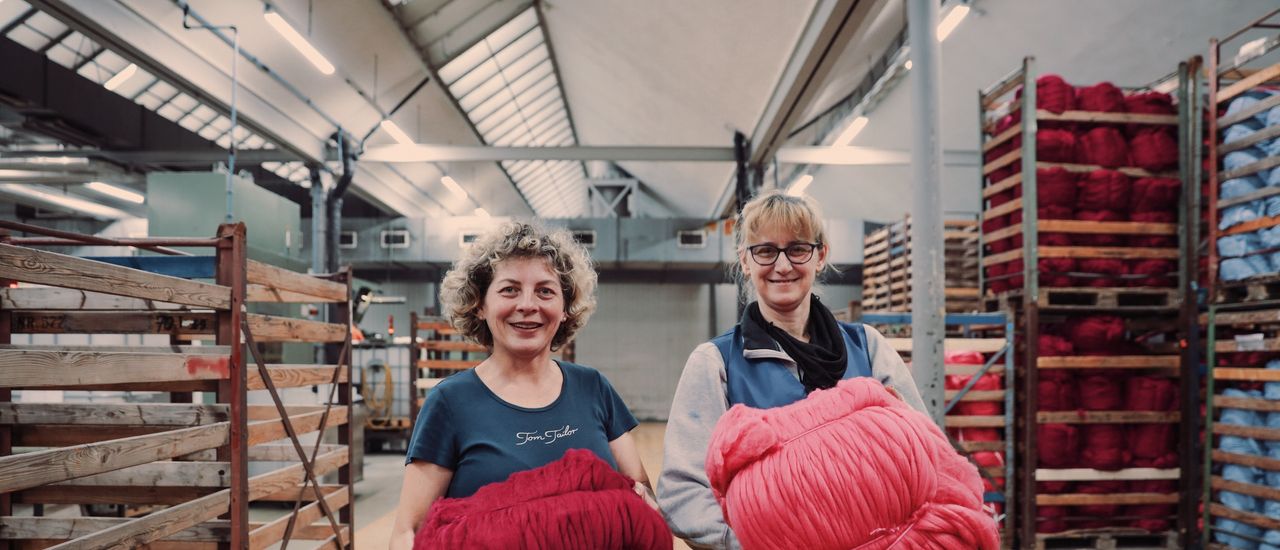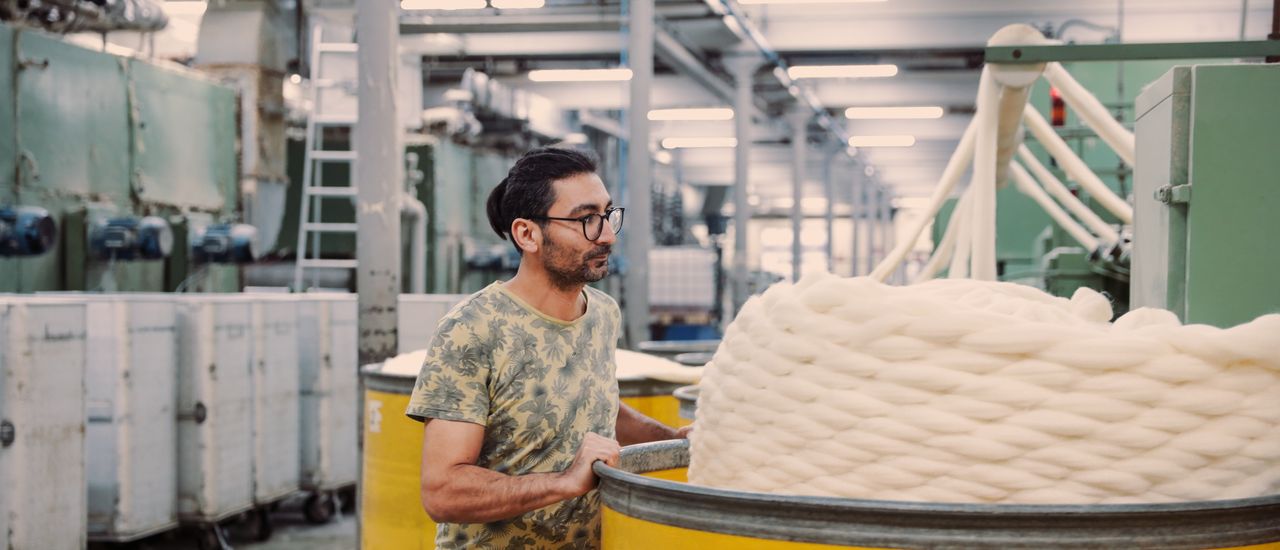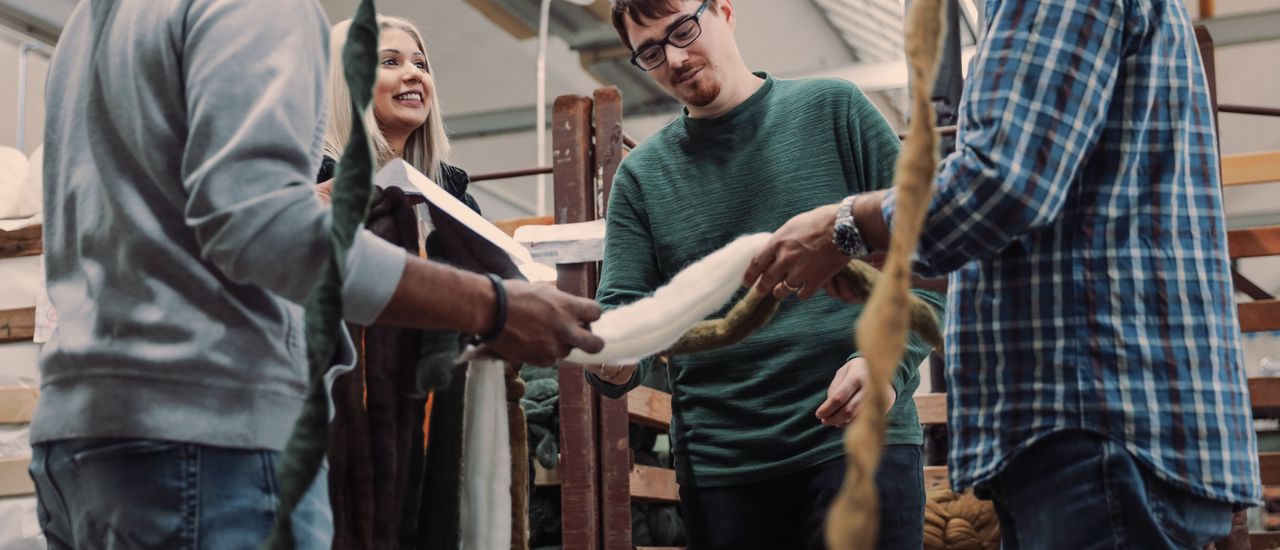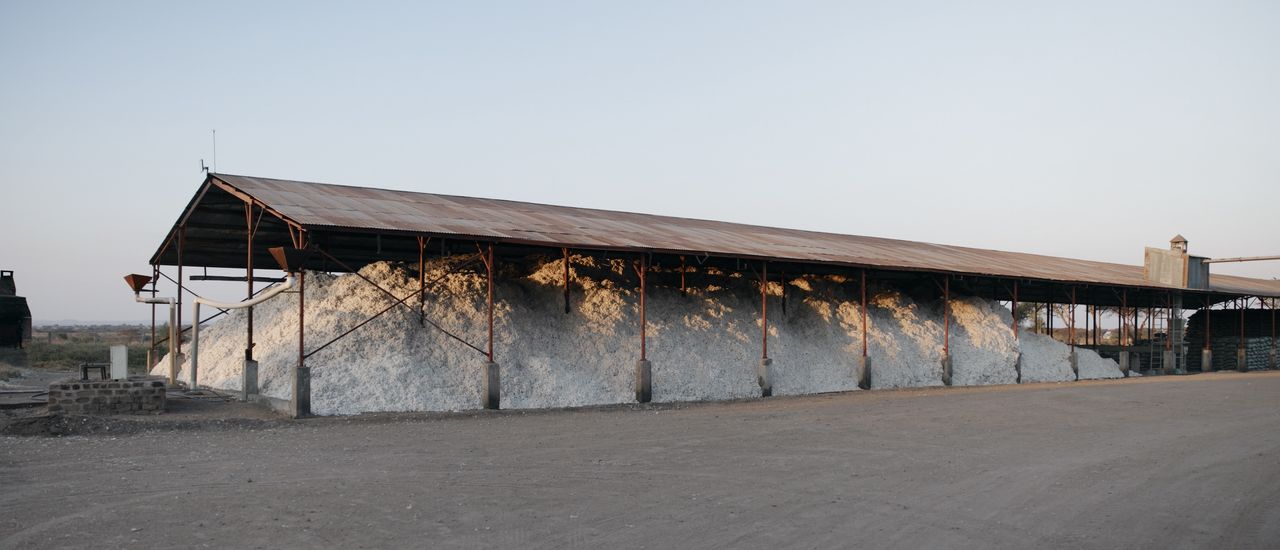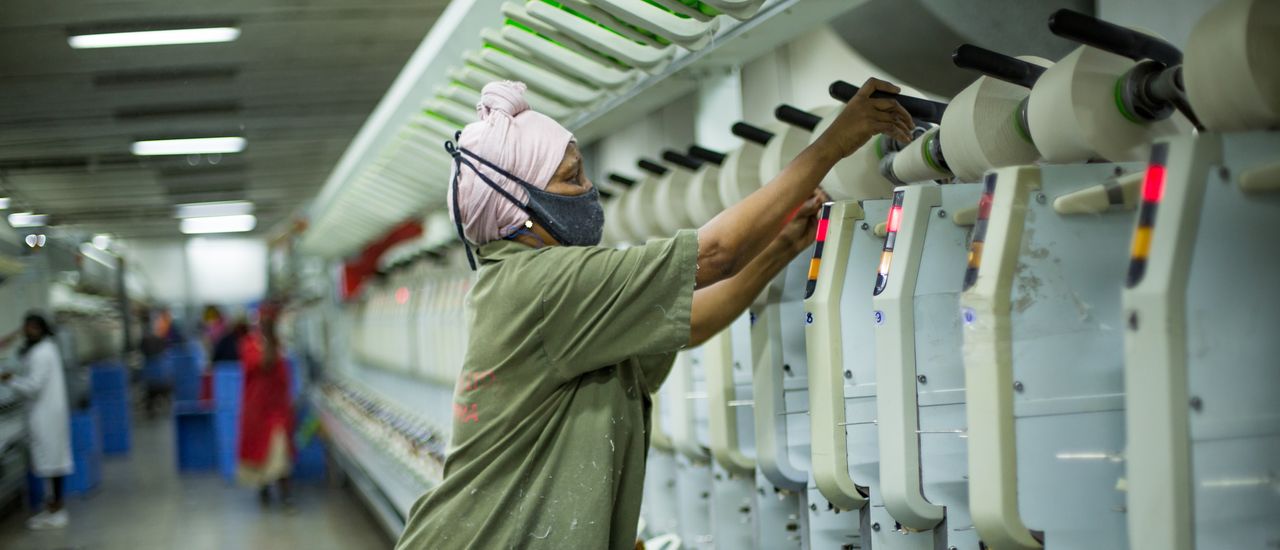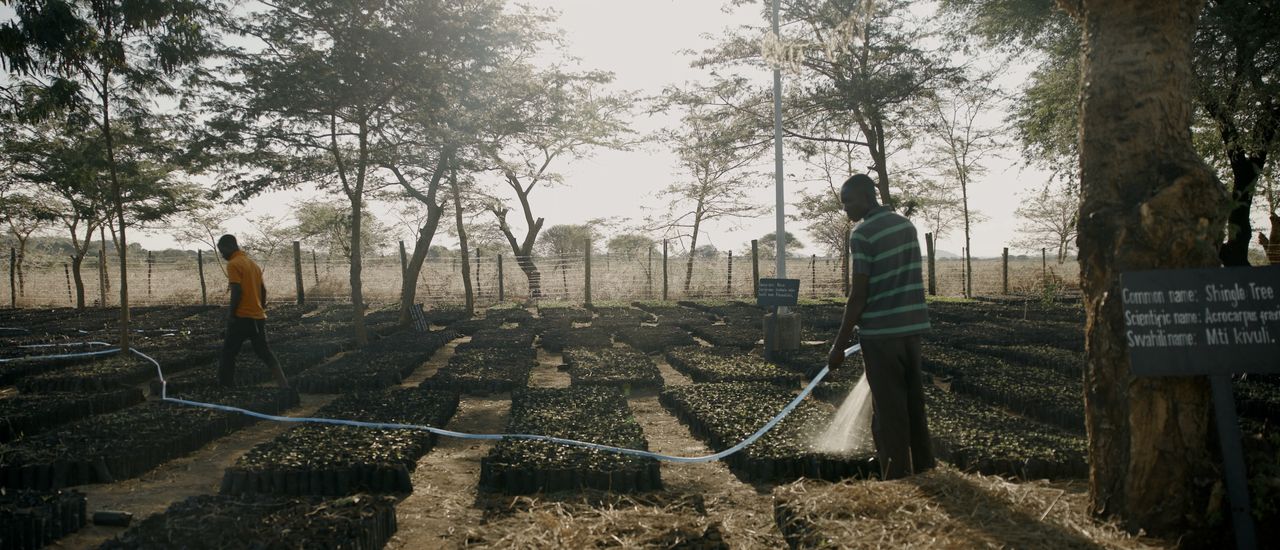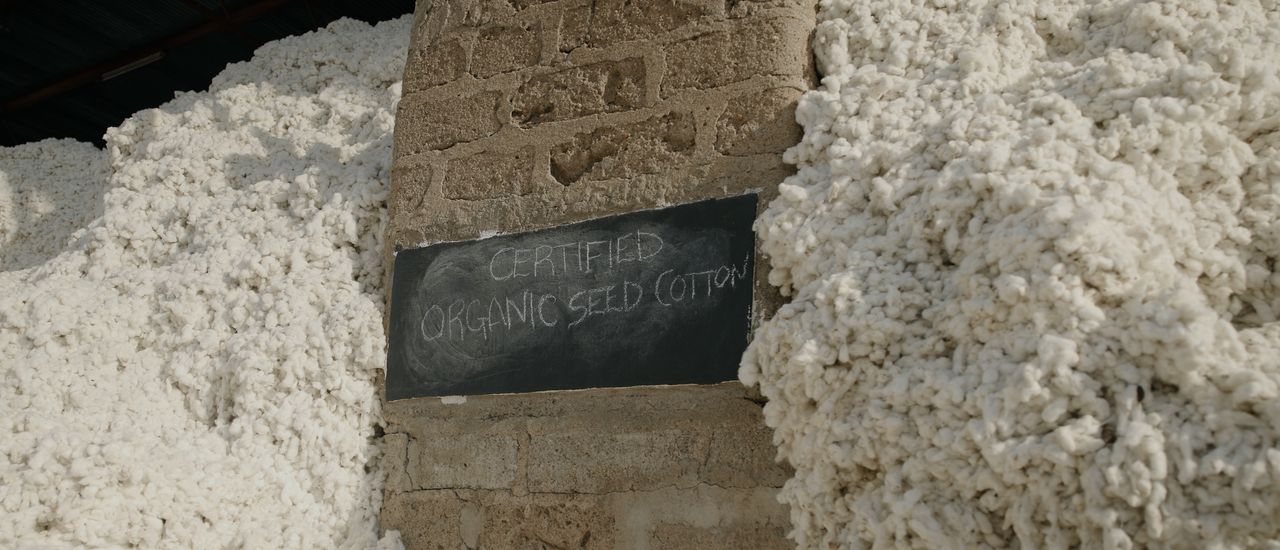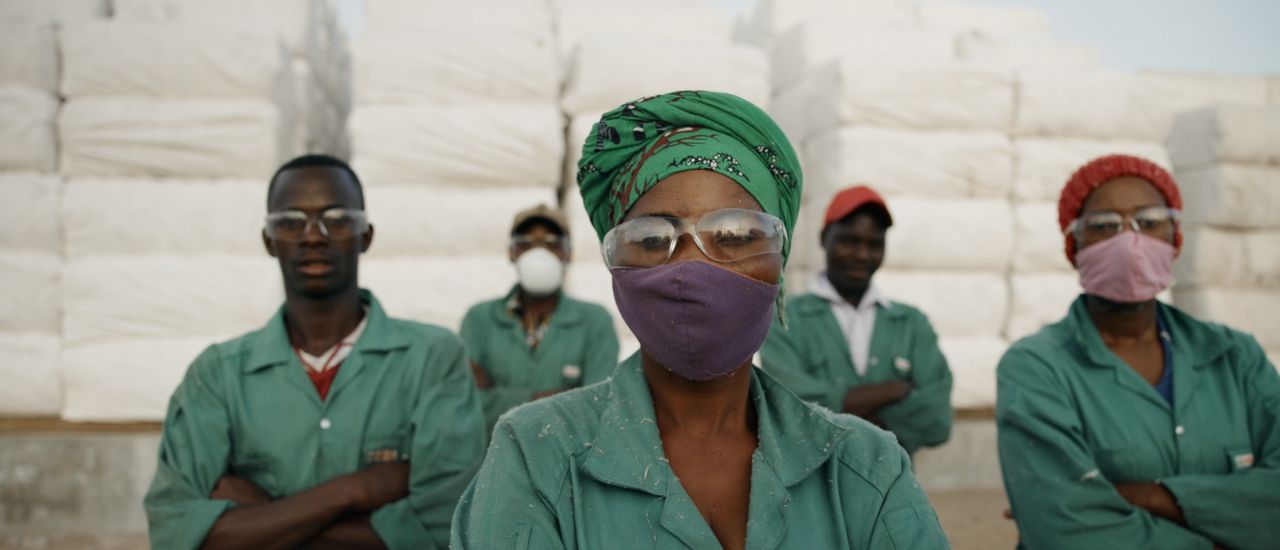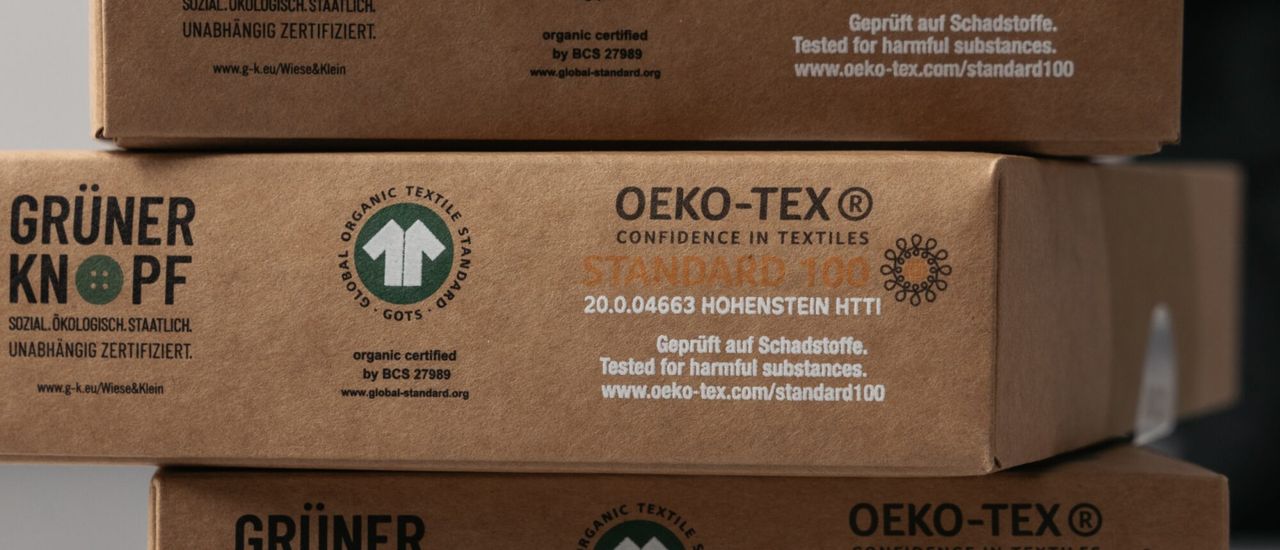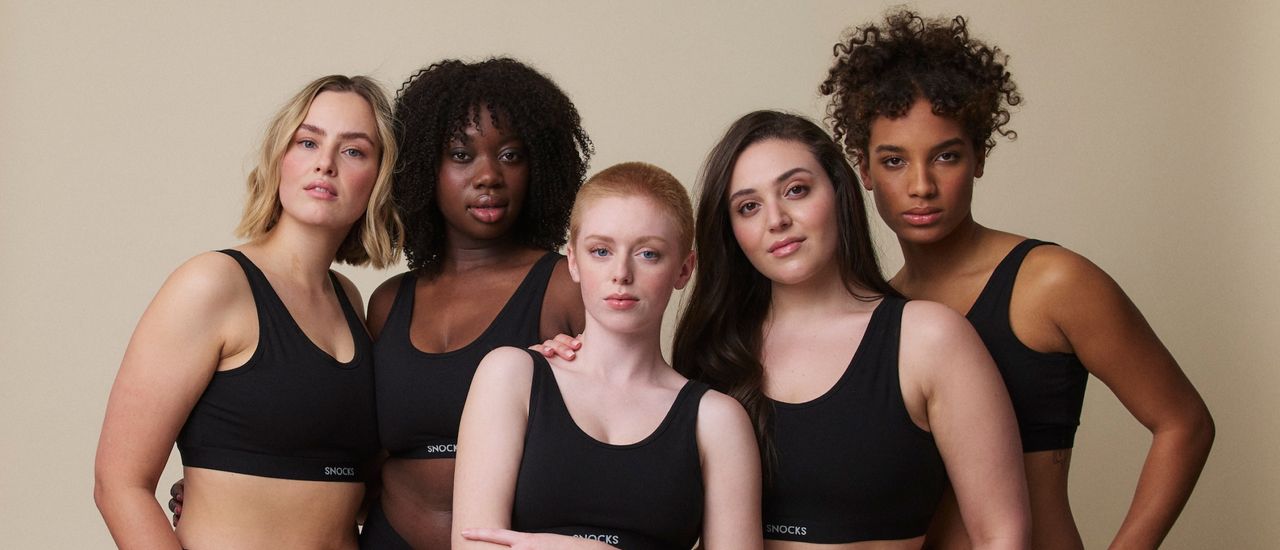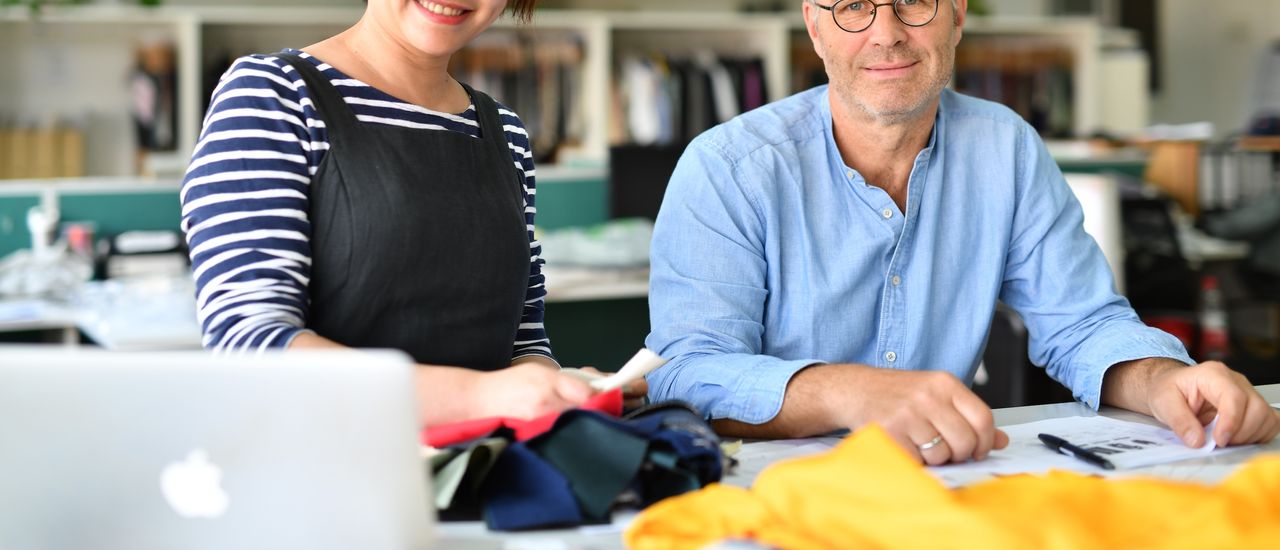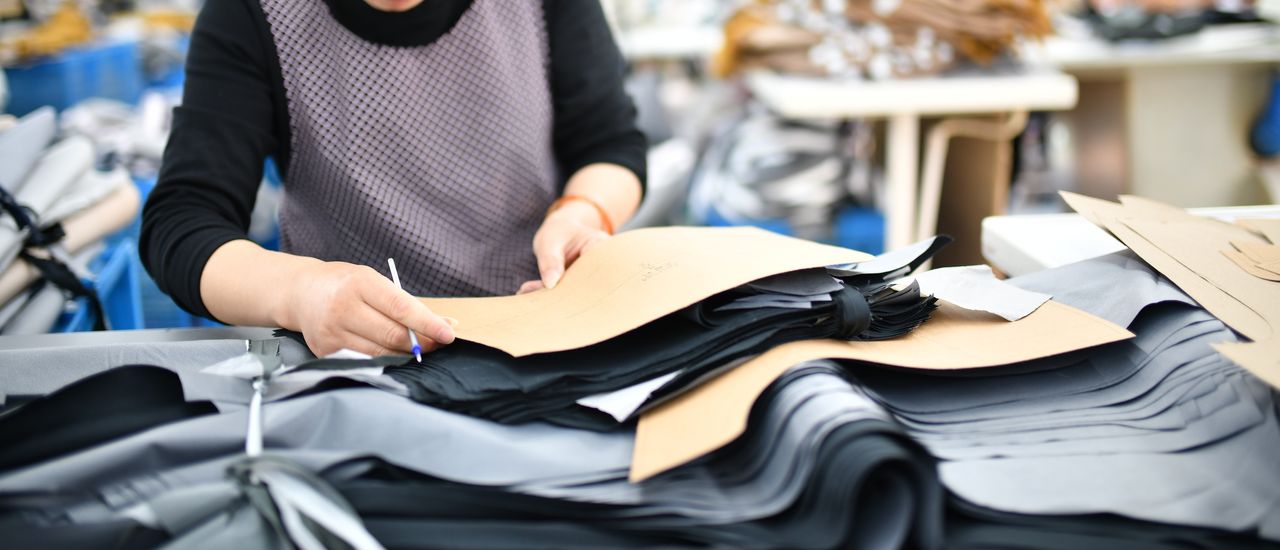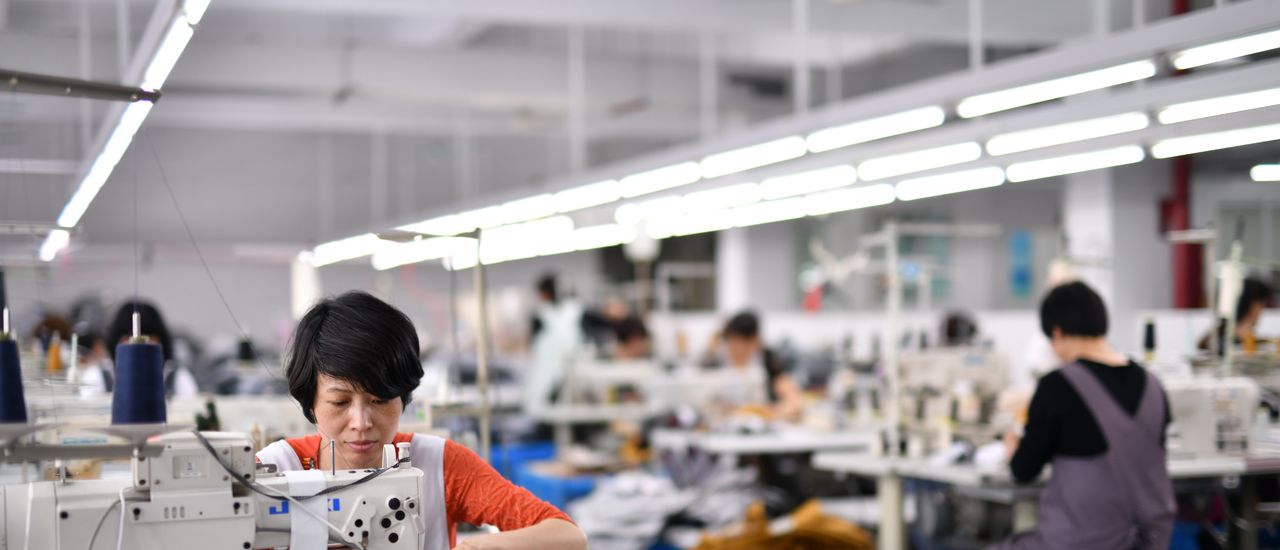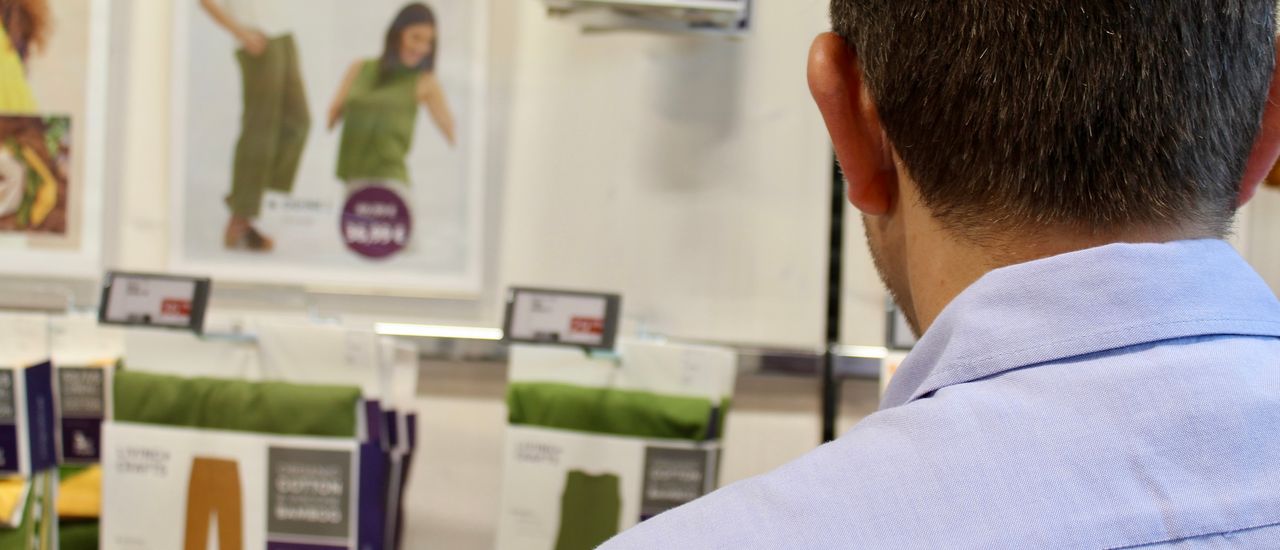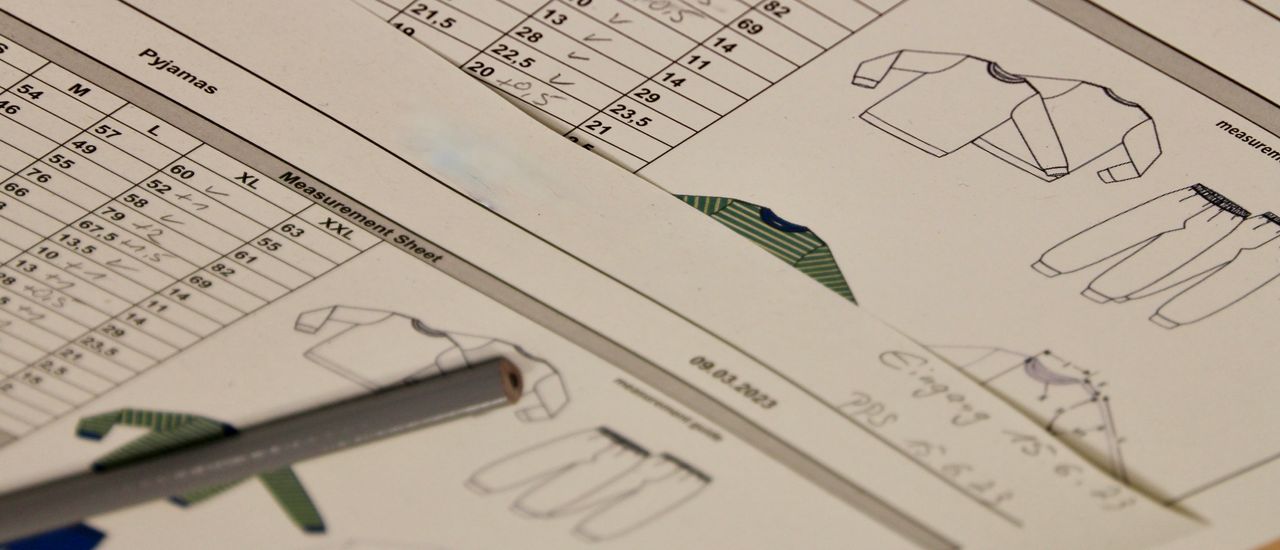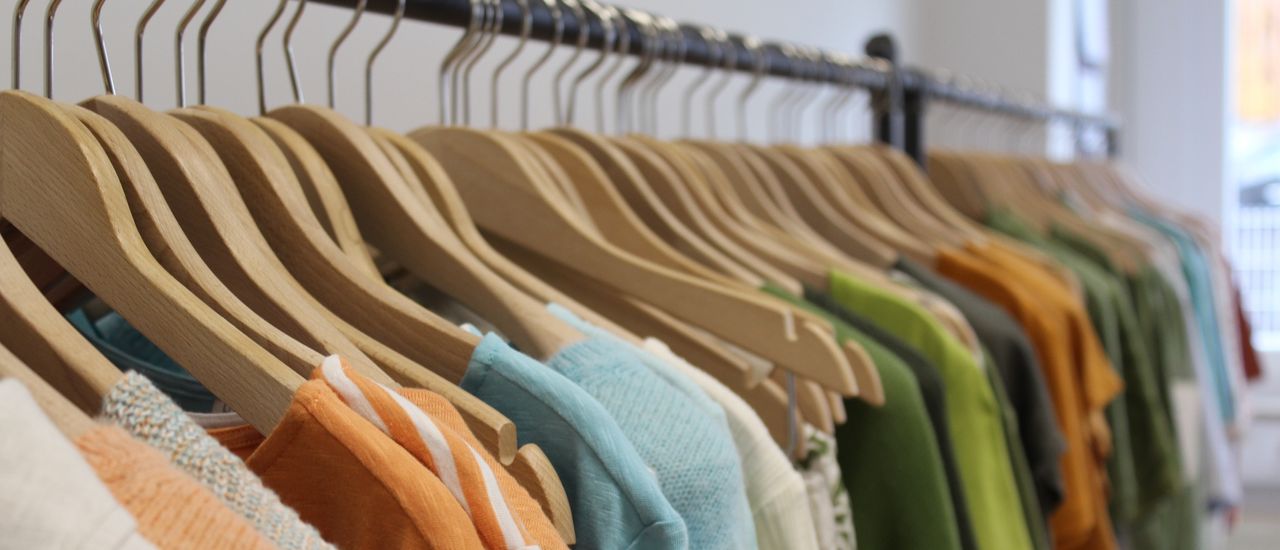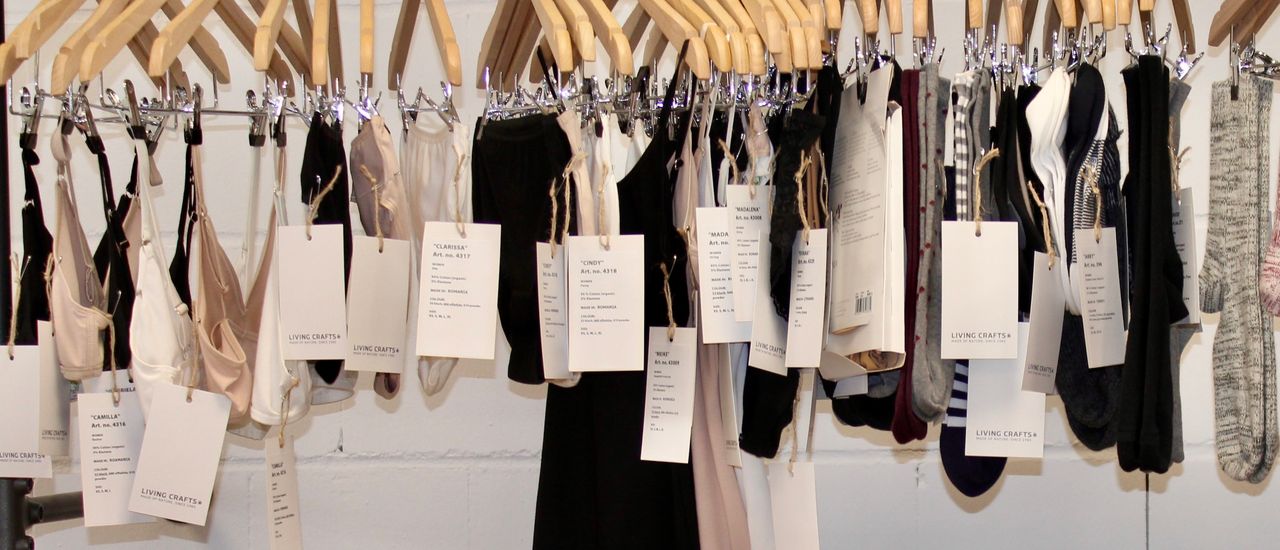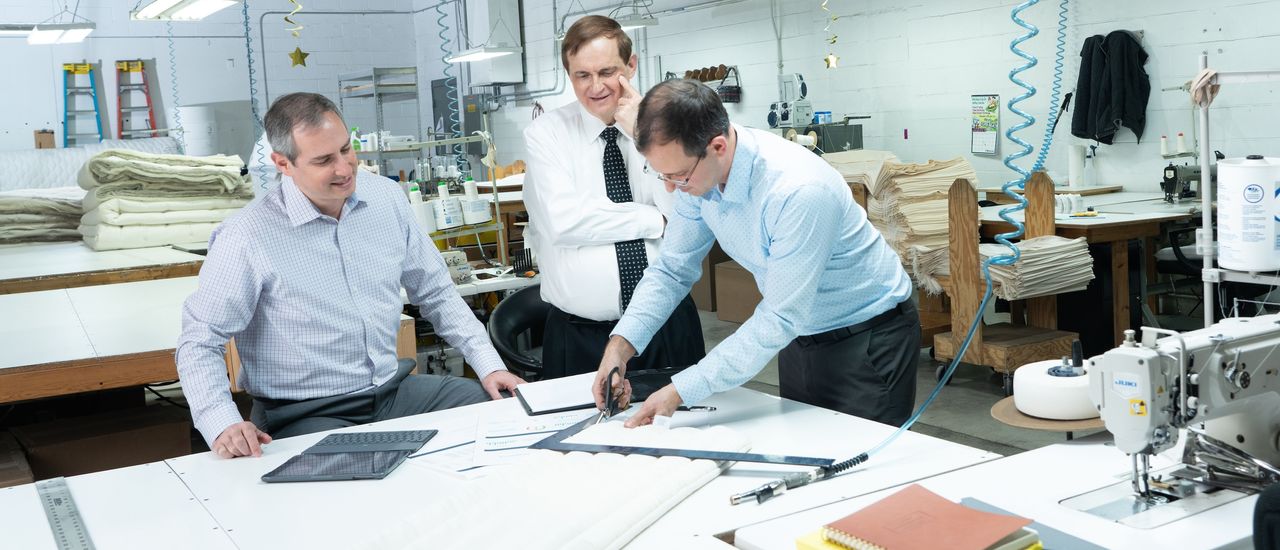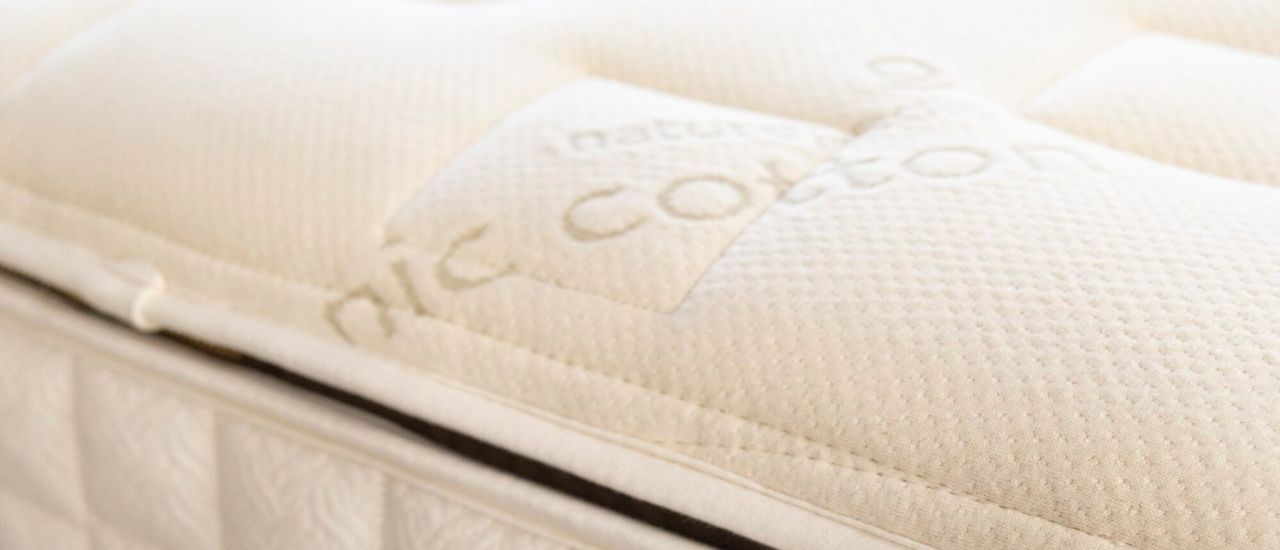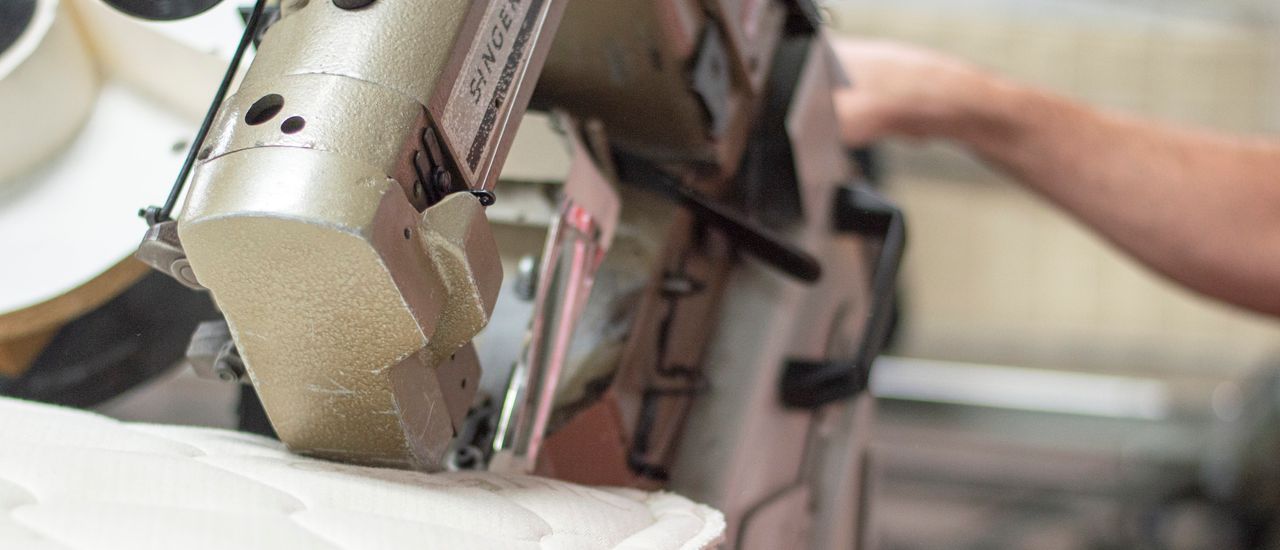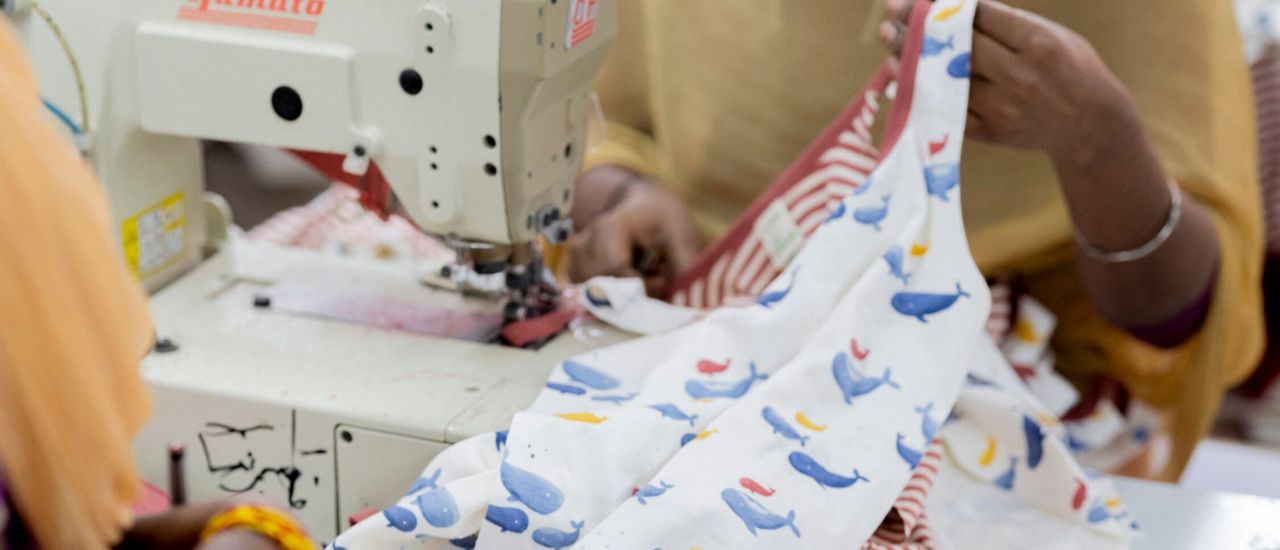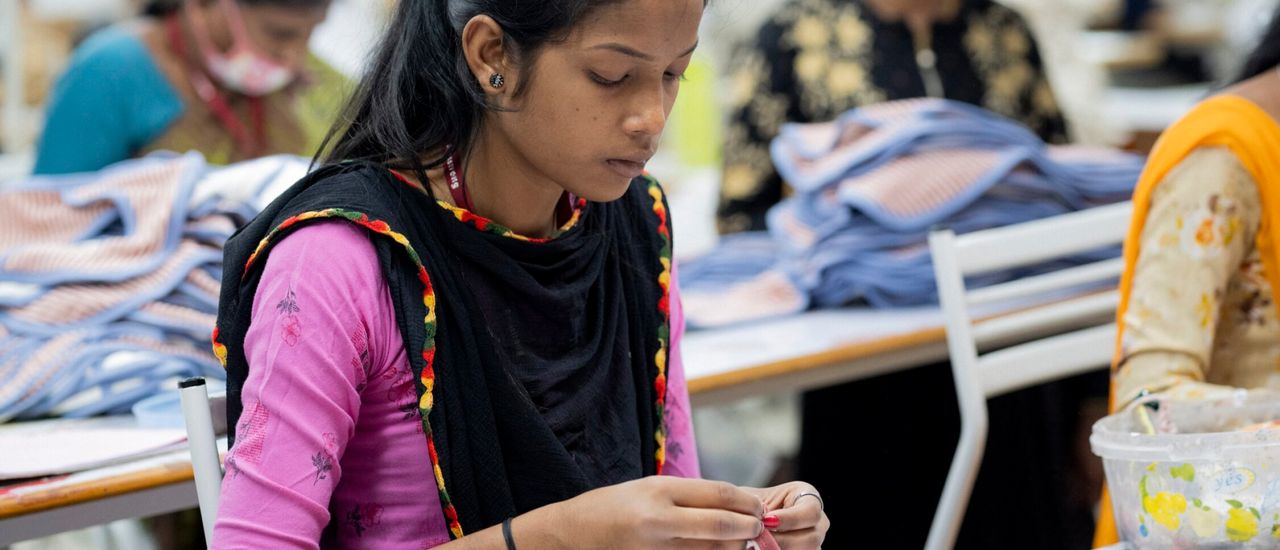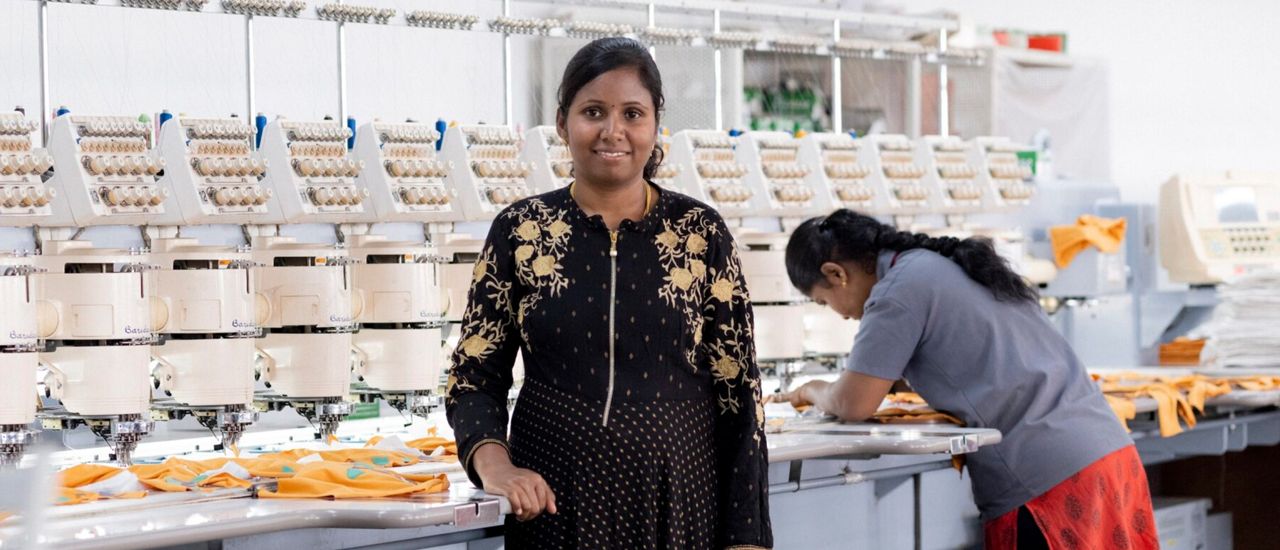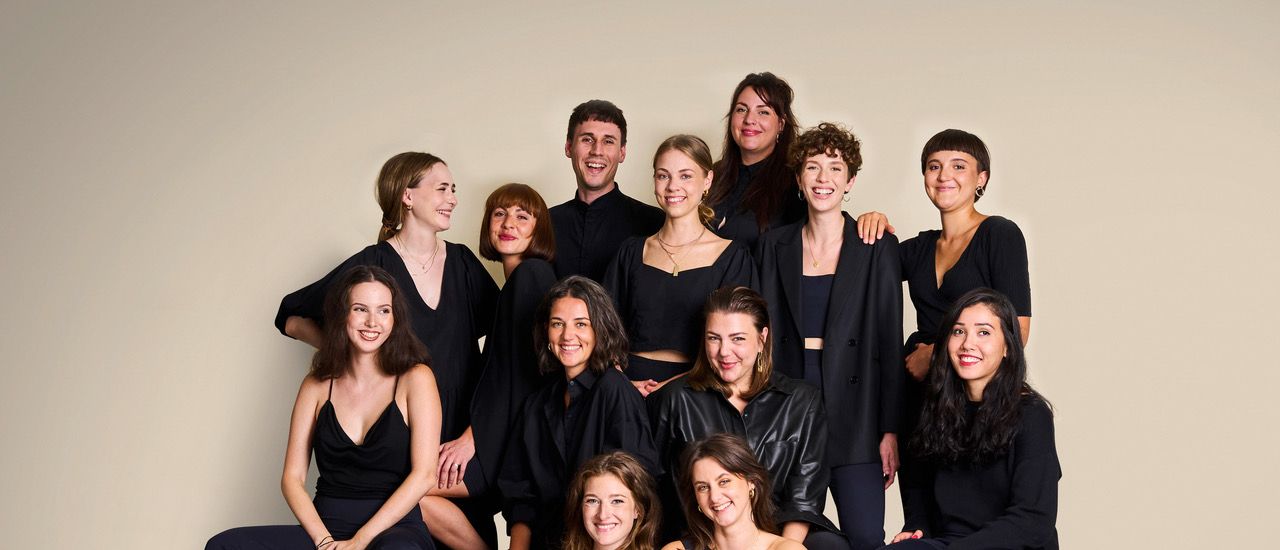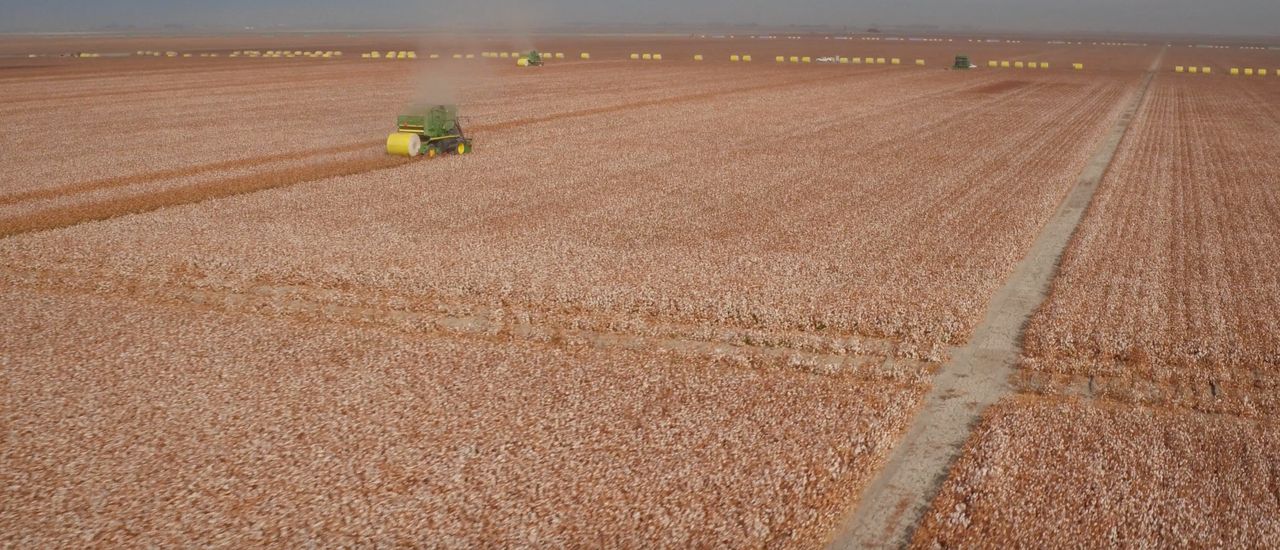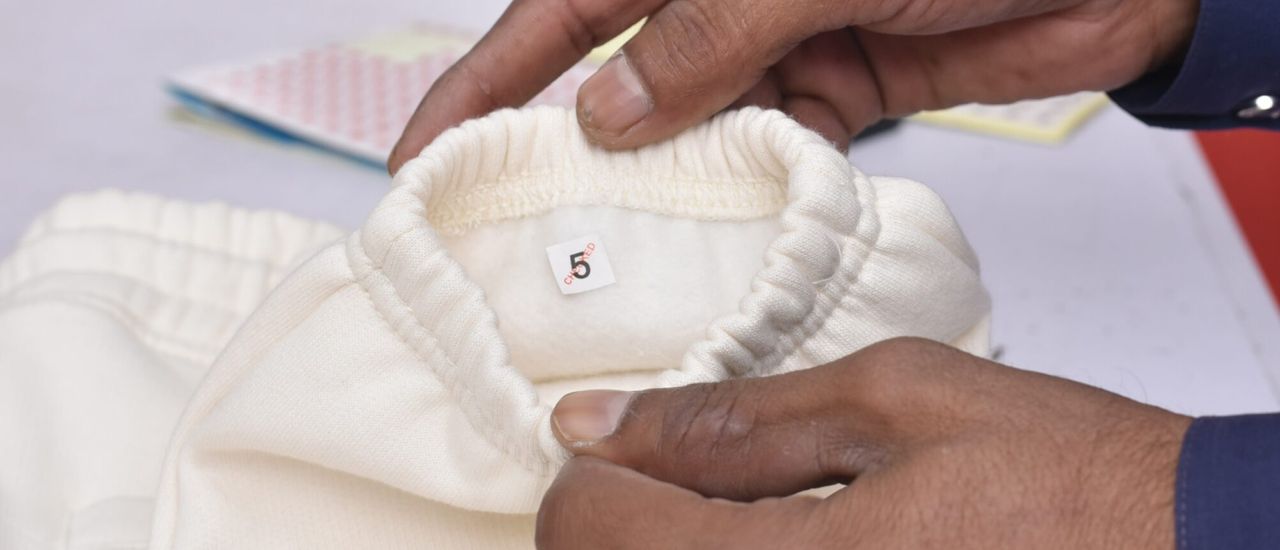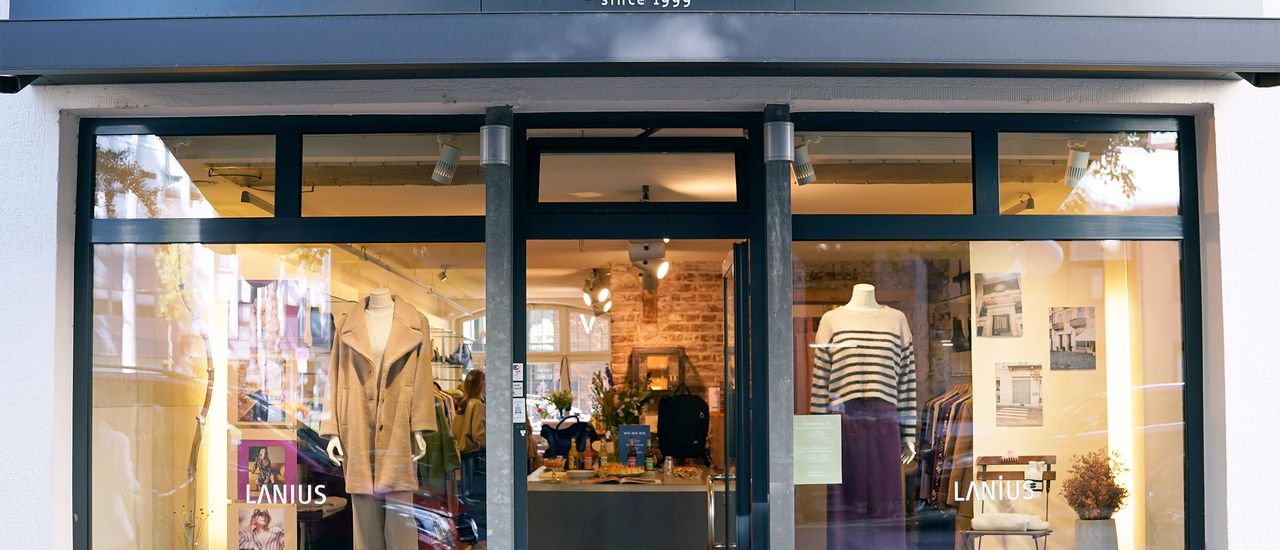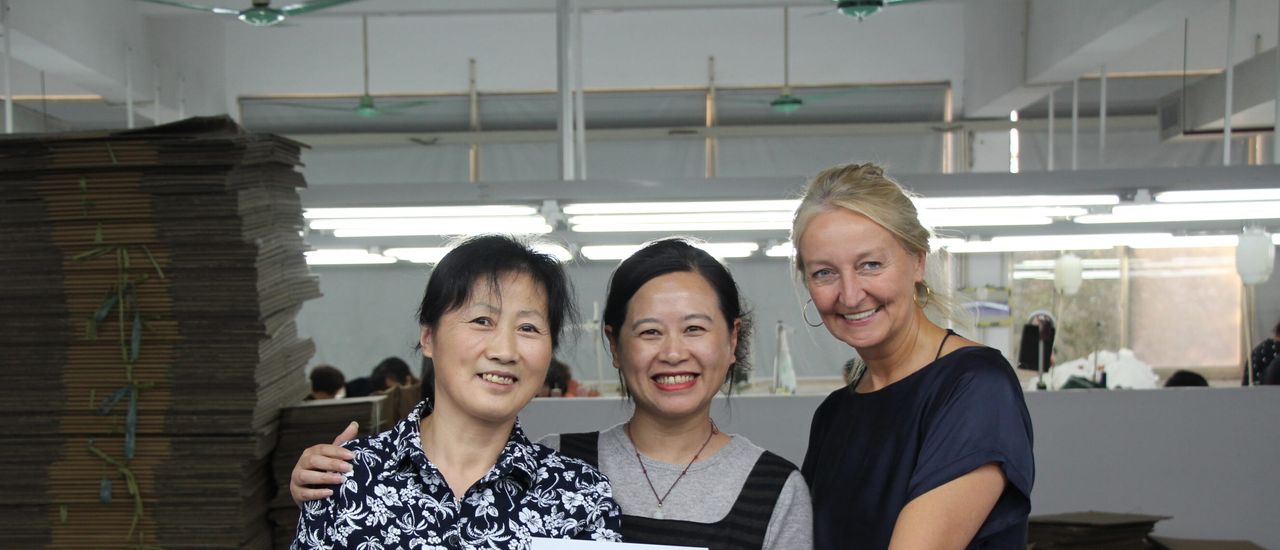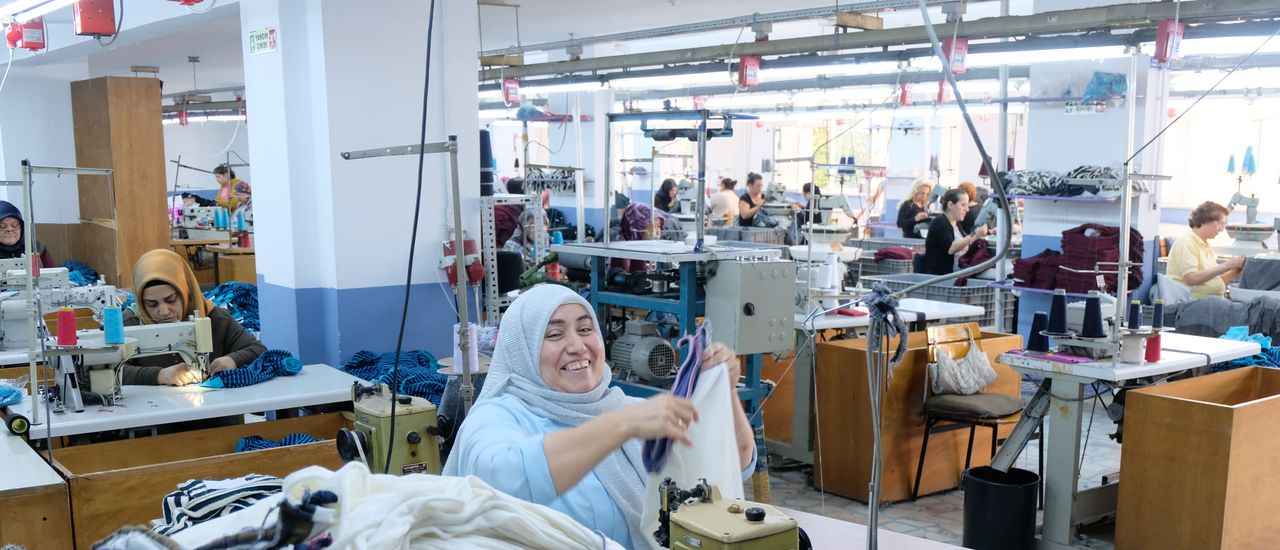
GOTS and certified companies in action
Case study
SALZWASSER
![]()
SALZWASSER is a lifestyle clothing brand based in Hamburg, Germany, that focuses on high-quality and stylish essentials made of natural and sustainable materials. The brand is synonymous with ethical production, transparency and a deep connection to coastal living and watersports culture.
![]()
SALZWASSER uses natural fibres and avoids the use of synthetic fibers, aiming for mono-material compositions. Customers are involved in product development to increase the emotional value of clothing and support extended lifecycles of products.
![]()
From the very beginning, SALZWASSER and its entire supply chain has been fully certified by GOTS, with production occurring in Germany, Italy and Portugal.
![]()
As a growing company, SALZWASSER aims to extend to other products and categories while keeping the focus on mostly mono-material compositions, circular design approaches and highest certification grades of GOTS.
![]()
As a social business, they started a non-profit funded in part by the brand’s revenue. The voluntary work supports environmental education programs and events, as well as environmental projects focused on coastal blue carbon ecosystems and marine nature-based solutions.
Hayleys Fabric
![]()
Since 1992, Hayleys Fabric has been a sustainability trailblazer. GOTS certified in 2014, this Sri Lankan company sets new standards in eco-friendly, fair, and innovative textile practices, including a mahogany dye from furniture waste and a black dye from its biomass waste.
![]()
Hayleys Fabric’s comprehensive textile processes span knitting, dyeing, printing, brushing, sueding, and finishing, for a diverse portfolio of fabrics. Notably, the company has developed its own brand of fabric through its Innovation Centre.
![]()
The largest single solar roof in Sri Lanka powers 20% of its energy, reducing its carbon footprint by 15%. Hayleys Fabric has optimised its processes to reduce waste and increase energy efficiency, along with meeting GOTS’s robust guidelines for social responsibility.
![]()
A biodiversity wetland park next to the facility is home to nearly 300 species of flora and fauna, serving as an educational and research hub for local schools. Hayleys Fabric also supports an in-house organic farm as well as the restoration of endangered Sri Lankan forest plants.
![]()
"GOTS certification resonates with our dedication to sustainable sourcing, organic materials, and ethical production. It assures our customers of superior quality fabrics and serves as a testament to our unwavering dedication to responsible practices, fostering trust and transparency in our industry." MD/CEO Rohan Goonetilleke
Controlled Supply Chain Scheme (CSCS)
![]()
Obtaining GOTS certification is prestigious, but its complexity and cost can be barriers for small operators. The ongoing Controlled Supply Chain Scheme (CSCS) Pilot Project was introduced in 2022 to test a streamlined certification process for small-scale facilities.
![]()
Under CSCS, supply chain groups of 8-30 facilities with 20 or fewer workers can achieve GOTS certification as a single entity. SANKEI MERIYASU, a 97-year-old Japanese artisan knitwear company with deep roots in tradition and community, recently achieved the first GOTS certification through the CSCS system.
![]()
“As the very first group to receive GOTS CSCS certification in the world, we will continue our efforts to make products that we are proud of, and communicate to the world about the products made by this local small group in Japan.” Ken Miki, Executive Director at SANKEI MERIYASU
Organic Cotton in Mexico
![]()
Cotton's rich history in Mexico spans millennia. The introduction of GMO cotton raised sustainability concerns, leading to Mexico's 2019 ban. In Chihuahua, Materia Consumo Sostenible and GOTS partnered to empower farmers with knowledge and resources for organic cotton.
![]()
The challenge was to empower local farmers with the knowledge and resources needed to cultivate organic cotton while ensuring the environmental and economic sustainability of the industry. Spanning approximately 2.5 hectares, yields of 11 to 14 bales of organically certified seed cotton were anticipated.
![]()
Navigating the challenges posed by the dominance of conventional cotton production in the region was no small feat. One significant hurdle was finding a ginning facility willing to process organic cotton. Additionally, adapting transportation and cropping equipment to the project's scale required creative solutions.
![]()
The project demonstrates that organic cotton production can flourish, promoting both ecological and community well-being. As the government's restrictions on GM cotton cultivation create opportunities for transformation, the partnership between GOTS and local organisations represents a path to a more sustainable cotton industry in Mexico.
FC St Pauli
![]()
In the heart of Hamburg's lively St. Pauli district lies an unconventional football club, the Football Club St. Pauli 1910 e.V., affectionately known as FC St. Pauli. This unique club, proudly holding GOTS certification, is more than a football team; it's a symbol of social culture and sustainability.
![]()
FC St. Pauli takes pride in its GOTS certification and advocates strongly for fairness, ecology, economic sustainability, local ties, and diversity. These are the five core principles guiding the club. The sustainability efforts of FC St. Pauli extend to its merchandise, jerseys, and more.
![]()
The club offers GOTS-certified products and is a member of the Fair Wear Foundation. FC St. Pauli actively strives to incorporate its values and principles into jersey design and team sport collections. For instance, the third jersey of the 2022/23 season contributed donations to support a local graffiti artist, OZ.
![]()
Furthermore, FC St. Pauli uses football as a platform to promote sustainability and inspire others. The club is more than just a football team; it is a movement dedicated to a better, more inclusive, and sustainable world.
Armstrong Knitting Mills
![]()
Armstrong Knitting Mills, a textile factory in India that’s been in operation since 1969, is a pioneer in sustainable textiles and business in the industry and is known for its commitment to sustainability, social responsibility, and innovation.
![]()
Armstrong generates over 18.5 megawatts from windmills and 9.234 megawatts from solar energy annually, which is enough to ensure that its operations are powered entirely by green energy. This not only makes Armstrong a net-zero carbon emission factory but also reduces 25 million kilograms of CO2 emissions annually.
![]()
Utilising post-consumer recycled PET polyester, Armstrong has saved 60 million plastic bottles from landfills in the past decade. The company has planted 5,200 trees in 5 years and conserves rainwater, emphasising its commitment to sustainability.
![]()
Armstrong supports local farmers with fair-trade premiums, totalling around $1.6 million over a decade. These premiums contribute to improving the living standards of farmers through a number of programs.
![]()
Employees are at the heart of Armstrong's success, and the company tries to provide as many opportunities for the well-being of its workers as possible. That includes a safe and hygienic work environment, competitive pay, free transport, healthcare, and an on-site childcare facility.
Creating Job Opportunities in India
![]()
In partnership with the UK-based charity Leonard Cheshire, GOTS has played a vital role in a transformative project aimed at fostering social inclusion and economic opportunities for persons with disabilities and other challenges in the Ready Made Garment (RMG) sector in Tiruppur, Tamil Nadu, India.
![]()
Launched in March 2022, the project's goals include removing barriers like inaccessible workplaces and limited training. Objectives involve sensitising employers and professionals, adapting training for accessibility, and fostering collaboration.
![]()
The project empowered individuals with disabilities through tailored training. It adapted curricula with RMG sector skills in mind, fostering stakeholder knowledge and engagement through workshops, linking with GOTS certified entities for impactful results.
![]()
“This undertaking exemplifies the power of collaboration and the positive impact working together can have on our industry. It's a testament to the GOTS community's commitment to making a difference in people's lives and championing equality.” - Ganesh Kasekar, GOTS Representative in South Asia
GOTS and European Space Agency Collaborate for Integrity in Organic Cotton
![]()
In 2022, GOTS joined with the European Space Agency and Marple GmbH for an innovative research partnership. The groundbreaking pilot project uses remote satellite monitoring to verify organic cotton fields, aligning with GOTS' mission to support and advance cutting-edge technologies that enhance organic textile integrity.
![]()
This collaboration aims to train artificial intelligence (AI) to use satellite data to detect and classify cotton fields by cultivation standard (organic, in-conversion, natural, hybrid, GMO). Further, it enhances GOTS' ability to identify risks to organic cotton cultivation and facilitate volume reconciliation efforts.
![]()
One goal is to use the data to accurately identify fields that, while not yet certified, exhibit the potential for a seamless transition to organic cultivation due to the farmer's adherence to traditional and ecologically friendly farming practices. Identifying these areas could lead to new economic opportunities for small-scale farmers and their communities.
![]()
By harnessing the potential of remote satellite monitoring and artificial intelligence, this project is set to elevate the integrity and development of organic cotton cultivation. It embodies GOTS' commitment to continuous improvement and innovation in serving the sustainable textile sector.
Saitex
![]()
Saitex has been a key player in the global denim industry since 2012. With a daily output of 20,000 jeans from its LEED-certified facility, it recycles 98 percent of water and has made substantial strides in solar energy adoption, reducing energy consumption by 5.3 million kilowatt-hours and cutting CO2 emissions by nearly 80 percent.
![]()
Saitex is committed to social equity and community well-being. It provides support to orphanages, actively advocate for gender equality, and have established a unique production line to empower differently-abled individuals, with an ambitious target of creating 1,000 jobs and diverting 1,000,000 kg from landfills by 2025.
![]()
Over 58 percent of Saitex’s workforce is women, many of whom are in key positions in the company, Saitex believes that gender equality is a necessary foundation for a peaceful, prosperous and sustainable world.
![]()
Saitex is redefining waste management by converting toxic byproducts from wastewater treatment into bricks, used in the construction of affordable housing. Its approach reflects responsible and sustainable legacy-building.
![]()
Saitex champions social equity and inclusivity, setting the stage for a world where accessible, clean food is considered a fundamental human right. Simultaneously, the company is making conscious efforts to reduce its environmental footprint, leading the way in a cleaner, more sustainable future.
Schoeller Spinning Group
![]()
The Schoeller Spinning Group, a global leader in yarn production with a strong focus on worsted yarn, understands that true innovation is born from collaboration. By working closely with its customers, the company creates superior solutions.
![]()
The key to impeccable textiles in the realms of fashion, sports, and technical applications lies in the primary material - yarn. Schoeller's product strategy revolves around high-value, functional yarns. Its commitment to innovation keeps it at the forefront of industry trends.
![]()
One of the company’s newest achievements, the EXP wool treatment process sets a sustainability benchmark. The chlorine-free process uses less resources than conventional processes and is carried out reliably at the company’s European manufacturing site, meaning that it is a truly holistic sustainable innovation.
![]()
Schoeller prides itself on satisfying customer needs and more. Its commitment extends to providing a reliable supply service, maintaining a readily available stock, and offering a wide range of innovative yarns. It stands ready to support the realisation of ideas and the achievement of objectives.
Sunflag Tanzania
![]()
Established in 1965, Sunflag Tanzania is a pioneering textile and clothing company located in Arusha, Tanzania. With over 2700 employees, it serves international markets and upholds a rich history of innovation, quality, and exceptional customer service. Over seven decades, it has expanded globally, representing unwavering commitment and excellence.
![]()
Sunflag operates as a vertical factory, minimising its environmental footprint by consolidating all production processes in one location. All water used in the production process is meticulously treated by an effluent treatment plant, ensuring that the water is free from dyes and harmful chemicals, and preventing damage to the local ecosystem.
![]()
Sustainability and equality are central to Sunflag's operations. The company partners with organisations committed to supporting local farmers and businesses. All of Sunflag's cotton is rain-fed, reducing water consumption compared to irrigation-dependent regions.
![]()
To transport the cotton from the farm to the ginnery, ox and cart are used, further lowering carbon emissions compared to traditional truck transportation in other countries.
![]()
Sunflag Tanzania is deeply committed to social accountability, ensuring that all operations uphold national and international laws, and respect collective bargaining agreements. Its dedication extends to all parties involved in Its business, ensuring open and comprehensive communication.
SNOCKS
![]()
In the heart of Germany, SNOCKS was founded by cousins Johannes and Felix with a vision to offer exceptional sneaker socks. Today, this small venture has evolved into a dynamic team of over 100 individuals. SNOCKS now produces anti-hole sneaker socks and seamless underwear with unmatched zeal.
![]()
At the core of SNOCKS’ mission lies a deep commitment to create stylish essentials that not only look and feel good but also benefit our planet. GOTS mirrors SNOCKS on those core values, aligning seamlessly with SNOCKS mission to create a genuinely sustainable textile industry.
![]()
SNOCKS sustainability journey is continuous, acknowledging that it is not just a checklist, but a path with evolving challenges. The company’s commitment includes avoiding overproduction, ensuring fair labour conditions, utilising environmentally friendlier materials, and fostering open communication regarding sustainability efforts.
![]()
SNOCKS prioritises transparency, empowering consumers to support a more sustainable fashion industry. Through the company’s efforts of certified ethical manufacturing, transparent communication, and a perpetual endeavour to reduce its carbon footprint, it strives to nurture a future where the business flourishes symbiotically with the environment and communities it serves.
LangerChen
![]()
Founded in 2008 by Miranda Chen and Philipp Langer, LangerChen has redefined "Made in China" for fashion. Starting as Jiecco, a Chinese textile manufacturer, with a vision to create eco-friendly, ethically produced textiles, the company launched its eponymous fashion label in 2013. Since then, it has become synonymous with fairness, quality, and timeless style.
![]()
LangerChen merges certified organic natural fibres with technical membranes to create stylish, weather-resistant eco-outerwear. The company's commitment to sustainability is in every aspect of operation, including its GOTS-certified facility, located an hour from Shanghai, where the company manages the entire production process, from fabric to final jacket.
![]()
At the LangerChen Chinese factory, a transparent supply chain and a close-knit team are key. The company personally knows its 110 long-term employees, ensuring fair wages and good working conditions. Daily transportation is provided, nurturing an inclusive, sustainable workplace.
![]()
The alignment with GOTS criteria transformed LangerChen's operations. It led to resource conservation, carbon footprint reduction, and a production process focused on efficiency, in-house repairs, reduced plastic usage, and optimised transportation for minimal CO2 emissions.
Living Crafts
![]()
Living Crafts, a sustainable fashion pioneer since 1985, has evolved from a garage-start producing organic socks to a leading global supplier of eco-friendly textiles. Based in Selbitz, Bavaria, its products span the globe, crafted with a focus on enduring, high-quality, and sustainable clothing and home textiles.
![]()
Living Crafts is committed to offering products that customers can trust. The company prioritises sustainability through responsible operations, GOTS-certified products and CO2 compensation partnerships with renowned organisations. These efforts ensure that the environmental and social aspects of the supply chain align with the company's core values.
![]()
Living Crafts adheres to the principle of offering high-quality products at affordable prices. The company believes that sustainable clothing should be accessible for everyday wear, and this affordability plays a crucial role in driving change from the exception to the rule in the fashion industry.
![]()
Living Crafts aims to make every day special for its customers by focusing on versatile fashion trends and home textiles that create a sense of well-being. Its designs are suited for work, leisure, and special occasions, ensuring a touch of elegance in daily life.
Naturepedic
![]()
In 2003, Barry A. Cik, an Environmental Engineer, couldn't find a safe crib mattress for his new grandchild. Realising there were no options on the market to meet his specifications, he founded Naturepedic, pioneering organic sleep solutions for all ages, made without harmful chemicals and allergens, ensuring a safer and healthier night's rest.
![]()
Naturepedic extends beyond mattresses, prioritising organic sleep. The company handcrafts GOTS-certified organic mattresses, made without harmful materials, using alternatives like organic cotton, latex, wool, PLA batting, and glue-free encased coils.
![]()
“Our position is, ‘If you’re not GOTS certified organic, you’re not organic.’ There is no way to trust organic claims unless those claims are validated by the GOTS certification program.” – Barry A. Cik, Naturepedic Founder and Technical Director
![]()
GOTS has played a pivotal role in defining what an organic mattress truly is, differentiating it from conventional, non-organic options. Naturepedic's commitment to GOTS standards has not only legitimised the brand but has also positively influenced the mattress and bedding industry, establishing GOTS as the worldwide standard for organic mattresses.
![]()
Naturepedic has introduced a kraft paper roll-packing system, wrapping all products in recyclable kraft paper. This change showcases its commitment to sustainability, averting 55,000 pounds of plastic waste annually.
dm-drogerie markt
![]()
Established in 1973 by Prof. Götz W. Werner in Karlsruhe, dm-drogerie markt, Germany's leading drugstore chain, serves two million daily customers through 2,000+ stores and an online shop with 18,000+ items, supported by a workforce of 46,000+.
![]()
As an early adopter of GOTS, 96% of dm’s ALANA line of children's textiles is GOTS-certified today, exemplifying its commitment to sustainable practices. GOTS certification seamlessly aligns with the company's comprehensive sustainability perspective, emphasising social and ecological dimensions, reinforced by its rigorous inspection processes, solidifying its status as a reputable and sustainable standard.
"Our vision at dm is to help make our world, our society, and our lives a little better through our actions." - Christoph Werner, Chairman of the dm Management Board
![]()
GOTS requirements motivated dm to adopt recycled hangers for ALANA textiles. These hangers, crafted from grass fibre plastic, operate within a circular economy model, experiencing multiple use cycles. At the end of their life, damaged hangers are entirely recycled into new ones, reinforcing the sustainability loop.
![]()
dm’s commitment to GOTS certification extends beyond ALANA children's textiles, encompassing various product categories such as Fascino hosiery, ebelin towels, Jessa tampons, and Profissimo dishcloths, further demonstrating its dedication to sustainable and responsible practices.
JAN ‘N JUNE
![]()
Founded in 2014 by German designers Anna and Jula, JAN 'N JUNE in Hamburg embodies the fusion of fashion and sustainability, driven by a growing societal awareness. The company’s mission: to showcase stylish and sustainable fashion.
![]()
Achieving GOTS organic certification marked a pivotal moment for JAN 'N JUNE, underscoring its steadfast dedication to ethical manufacturing and eco-friendly materials. JAN 'N JUNE understood the vital role of GOTS certification in enhancing transparency and trust within the fashion sector.
![]()
JAN 'N JUNE's commitment to sustainability extends throughout the business. The brand's ethos centres around the belief that fashion and sustainability can seamlessly coexist. The company takes pride in producing garments fairly in Portugal and Poland, using sustainable materials like organic cotton, recycled polyester, and lyocell.
![]()
The company’s sustainable choices reflect JAN 'N JUNE's unwavering dedication to ethical practices and eco-conscious fashion, encompassing a circular economy, waste reduction, responsible consumption, and creative approaches to repurposing fabric offcuts.
Givachoice
Givachoice, a manufacturer of the world’s most renowned brands, remains unwavering in its commitment to shaping a more eco-conscious future. By prioritising the reduction of environmental impact and championing ethical values and sound management practices in the fashion industry, the company's sustainability policy strives to safeguard both the environment and the well-being of future generations. For Givachoice, sustainability is life!
Frugi
Founded by new parents in 2004, Frugi, previously known as Cut4Cloth, has grown to be the UK's premier ethical and organic children's clothing brand. With a presence in over 550 retailers across 30 countries, the company is dedicated to showcasing that superior design, strong ethics, and passionate individuals can be transformative. Its journey involves the use of organic cotton from trusted farmers, recycled plastic bottles for outerwear, and a relentless pursuit of innovation, all aimed at leaving a positive mark on the world.
Original Favorites
![]()
Founded in 2016, Original Favorites creates luxury wholesale blank garments, such as premium sweats, t-shirts, and knit beanies, using top-tier materials like Supima® cotton, cashmere merino wool, and organic cotton fibres, underlining a commitment to quality and ethical production.
![]()
The journey began with a careful assessment of raw materials, focusing on using the finest natural fibres. The company's commitment to environmental stewardship encompasses both the land and the people involved in cultivation, guiding every decision with an emphasis on ethics and sustainability throughout the production process.
![]()
GOTS certification strongly aligns with the company's core values, reflecting Original Favorites enduring commitment to responsibility and sustainability. GOTS assures both the company and clients that it successfully meets the stringent Standard requirements, enhancing its appeal through authenticity and credibility.
![]()
Original Favorites recent GOTS certification underscores its dedication to quality, sustainability, and transparency, setting a high standard within the luxury wholesale blank garment sector. The company's future goals include educating and encouraging clients to prioritise responsible and sustainable practices while creating expectations of accountability from suppliers.
LANIUS
![]()
Founded in 1999 by designer Claudia Lanius, LANIUS is a Cologne-based women’s fashion label that has built its reputation on timeless design and deep-rooted values. Now led by Claudia and her daughter Annabelle Homann, the brand remains a true family business, creating thoughtful collections twice a year that prioritise style, longevity, and responsibility.
![]()
Sustainability has always been part of LANIUS’s DNA ¬– for them it’s not about trends, but a mindset. Since the beginning, the company has focused on natural fibres, like hemp, linen, wool and organic cotton, and socially responsible production patterns. In 2012, this commitment took a defining step forward with their GOTS certification. For LANIUS, GOTS is more than a symbol on a tag: it’s a tool for transparency, guiding their ongoing journey to improve processes, safeguard people, and protect the environment. At the same time, it’s a key to responsibility that the people who wear their clothes can be assured it’s truly sustainable.
![]()
Today, around 50% of each LANIUS collection is GOTS-certified, and 76% of their suppliers hold the same certification. The company also works closely with long-term partners on-site, ensuring social standards are not only met on paper but lived in practice. Their broader commitment includes PETA-Approved Vegan products, mulesing-free wool, and affiliations with IVN or amfori BSCI. “GOTS gives us a structured path to do better – and be better – every step of the way,” says Annabelle Homann.
![]()
As they look to the future, LANIUS aims to grow the share of certified materials even further and inspire more of their partners to pursue certification. Their philosophy is simple yet powerful: LOVE FASHION / THINK ORGANIC / BE RESPONSIBLE — a motto woven into every piece they create.
